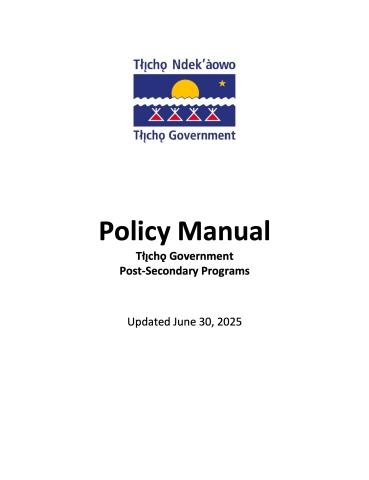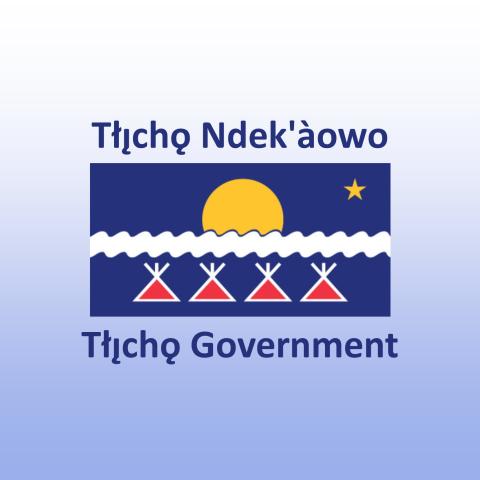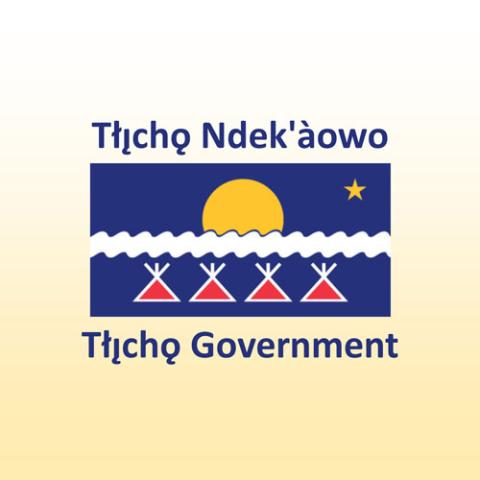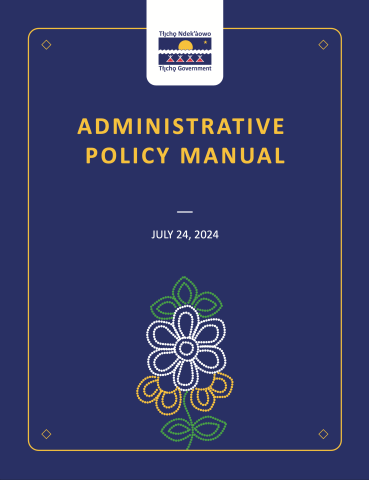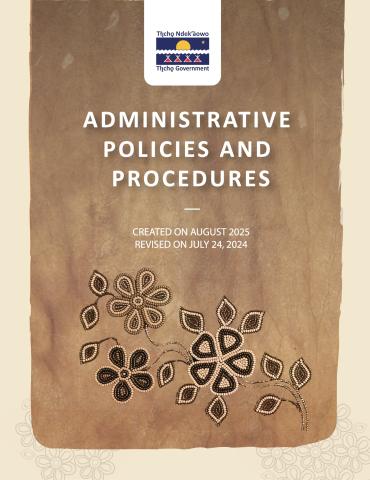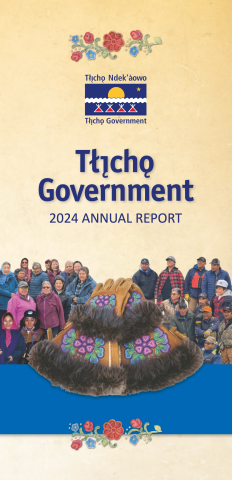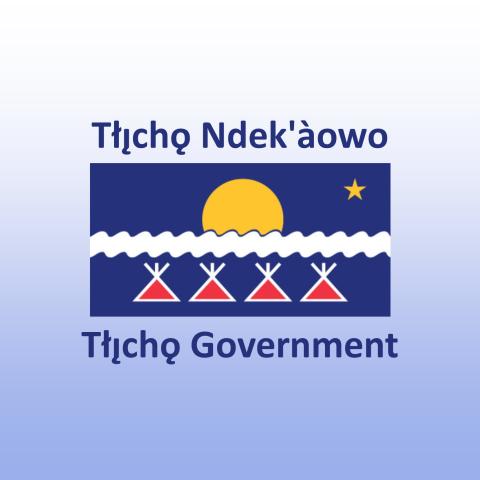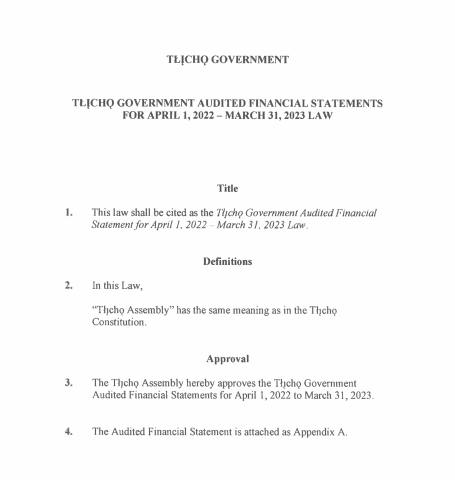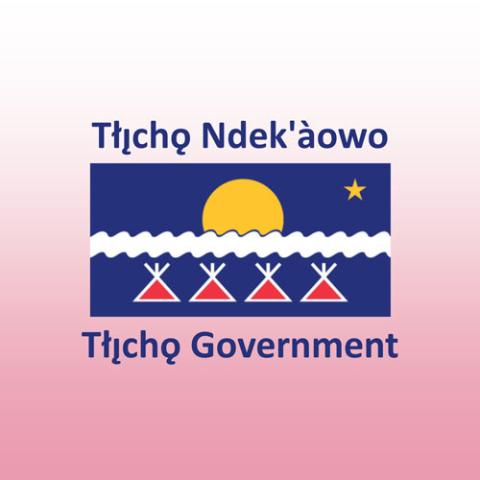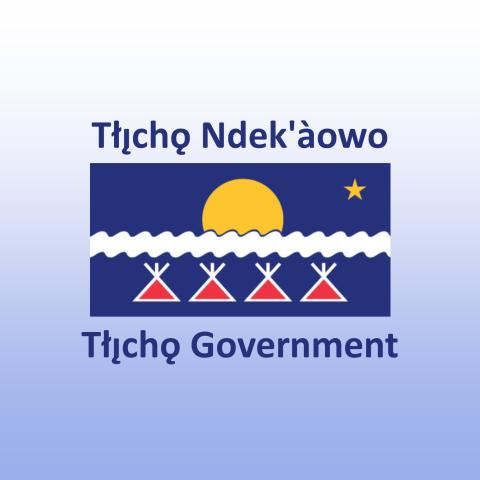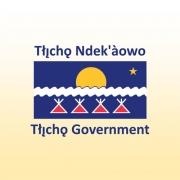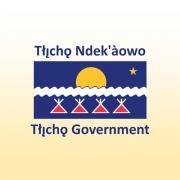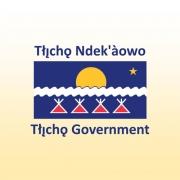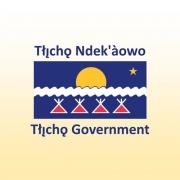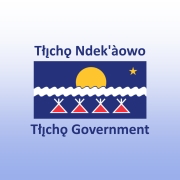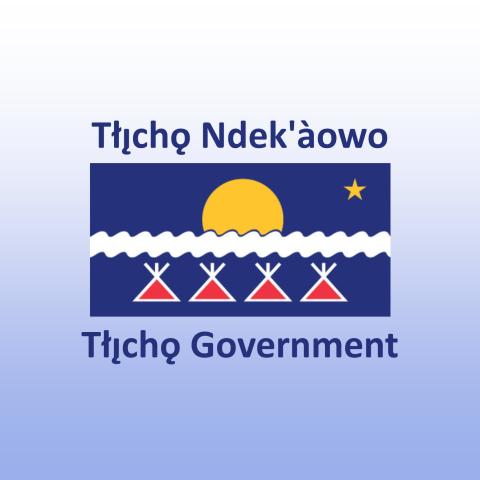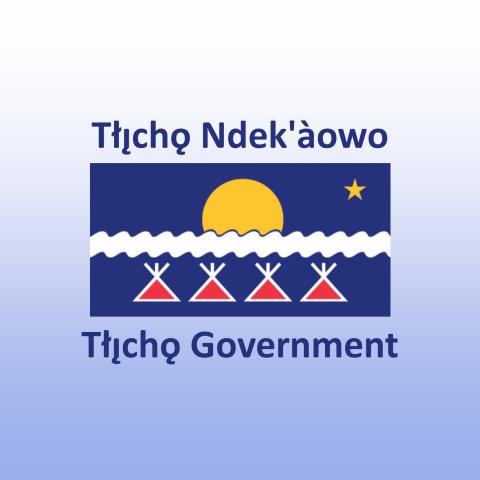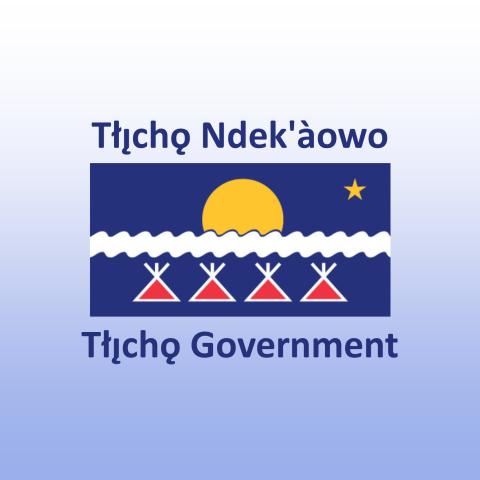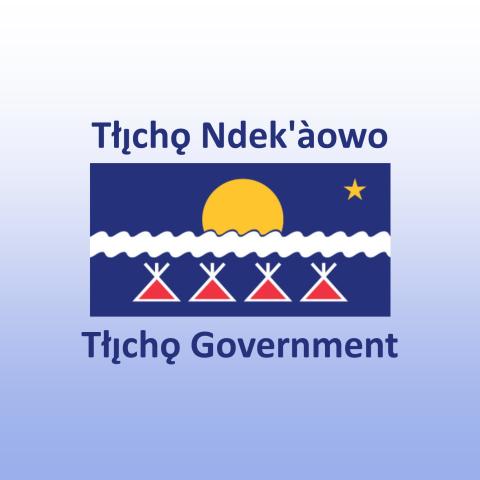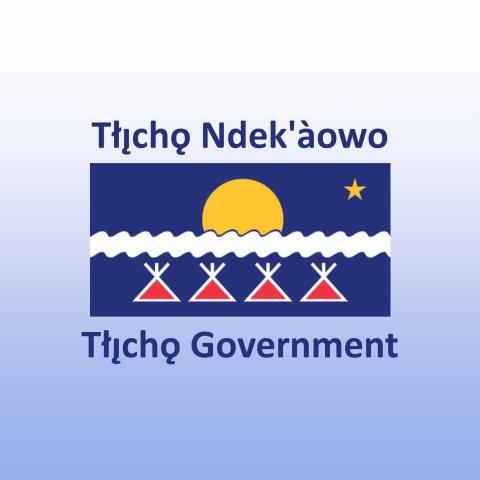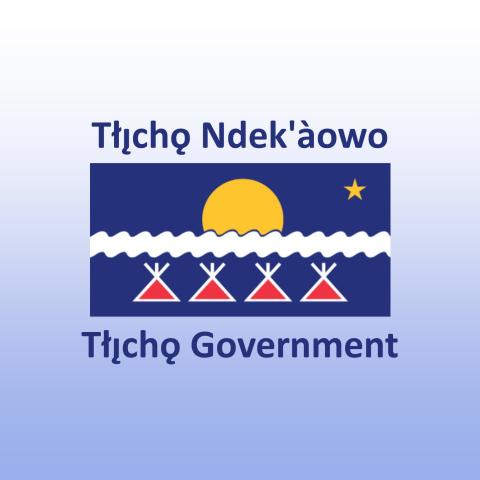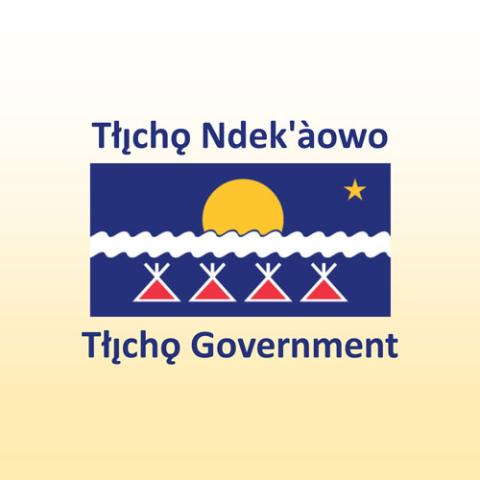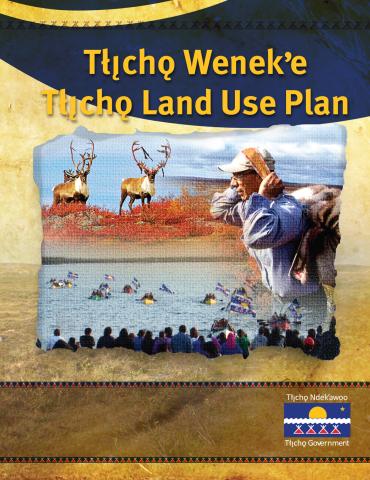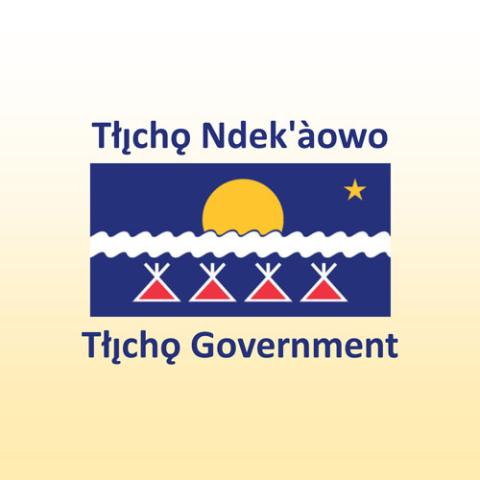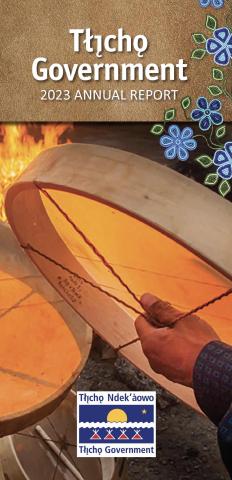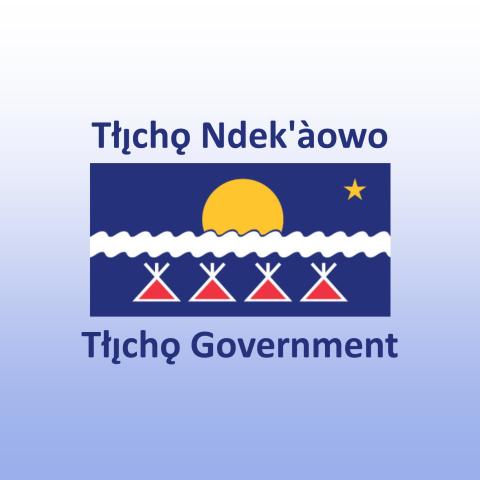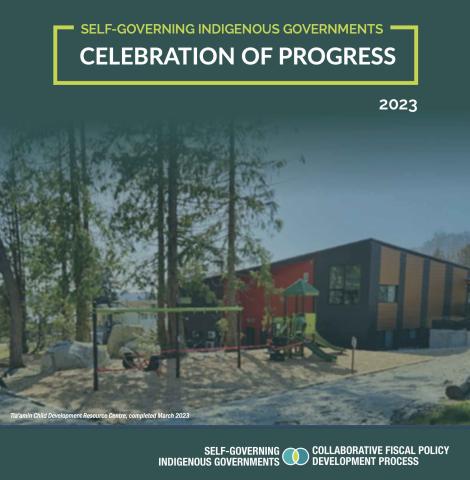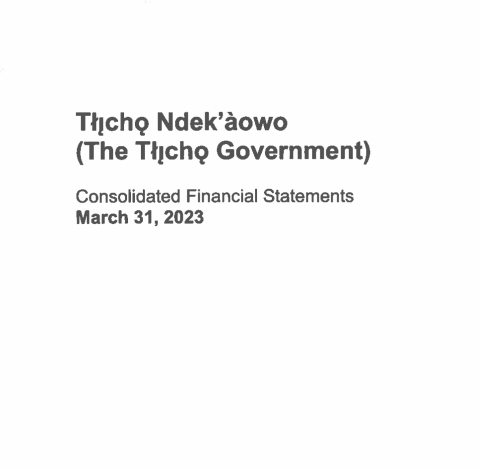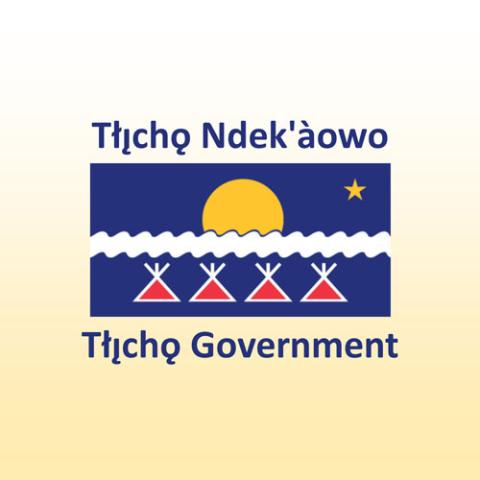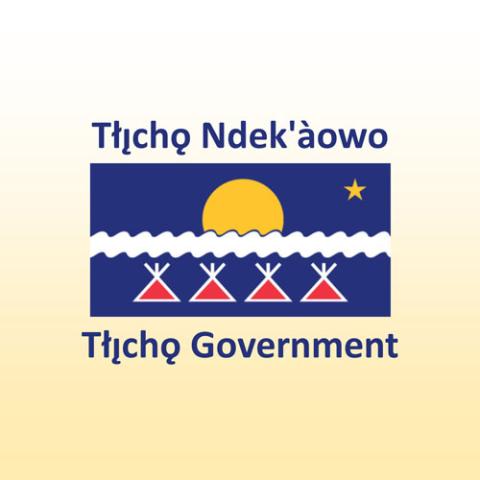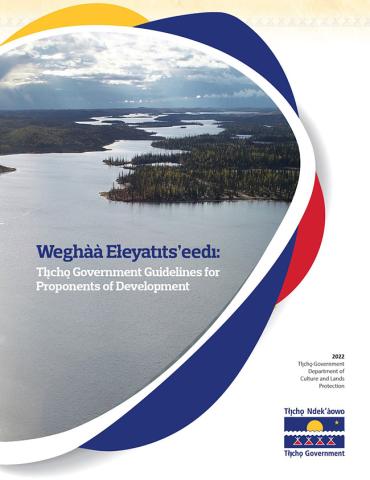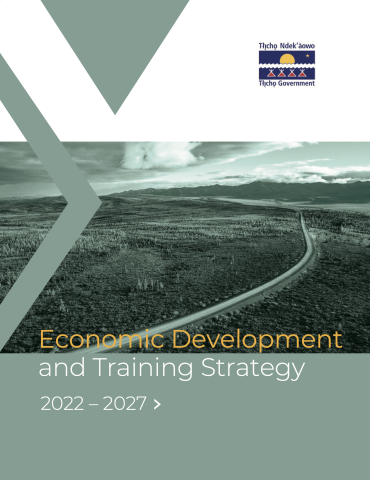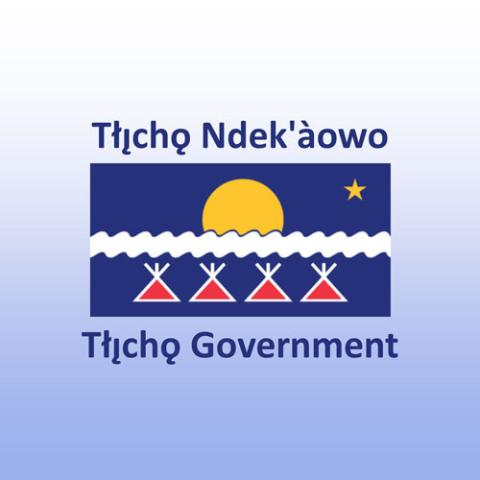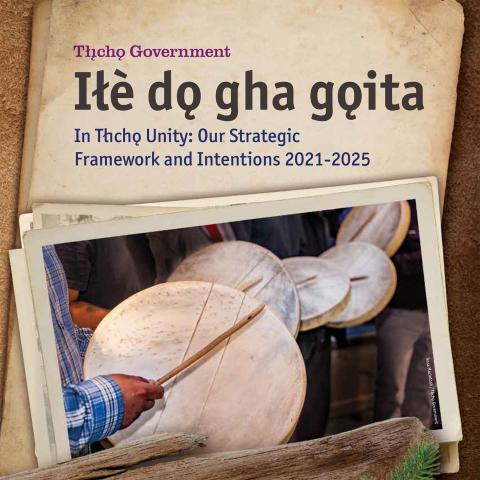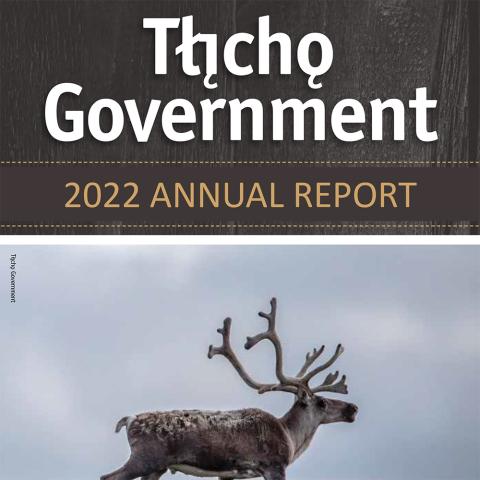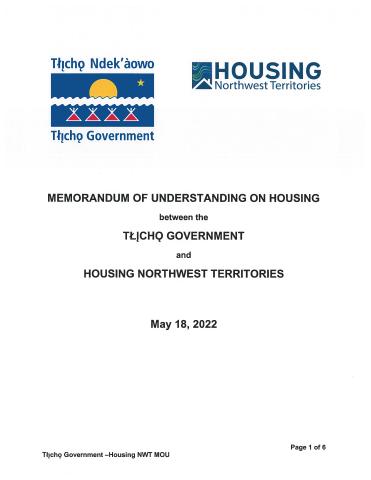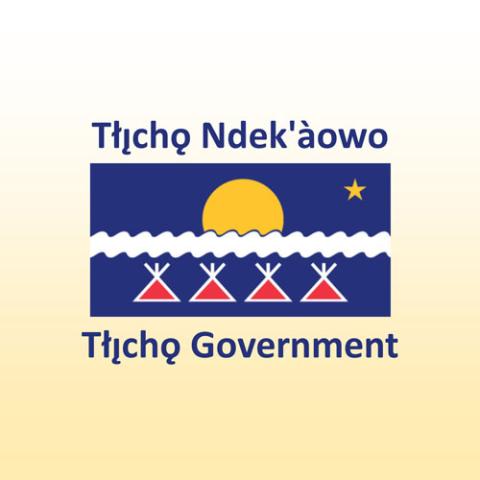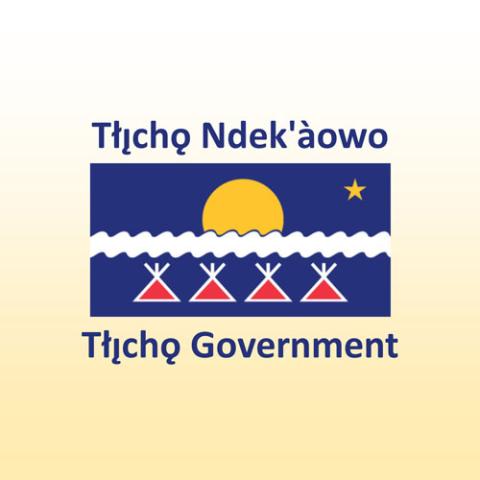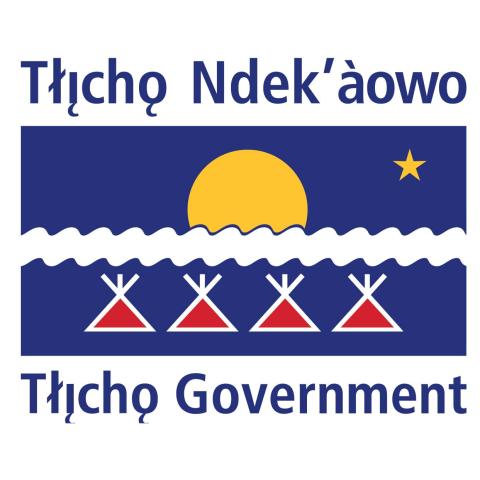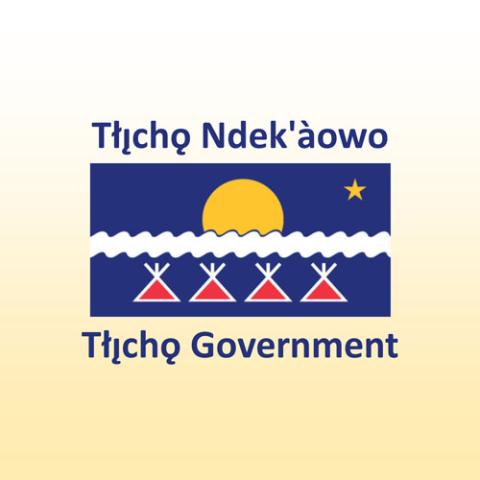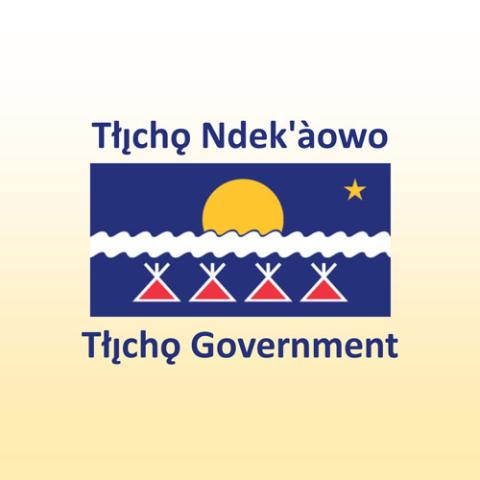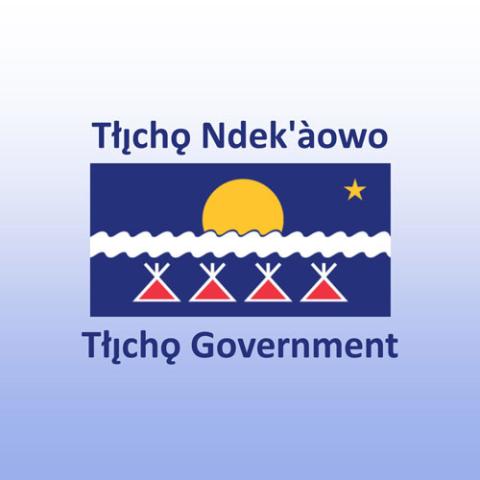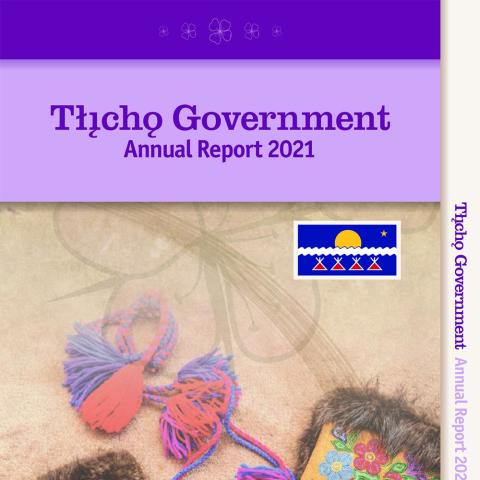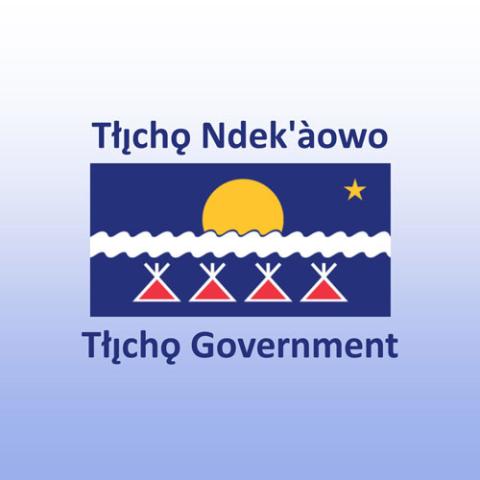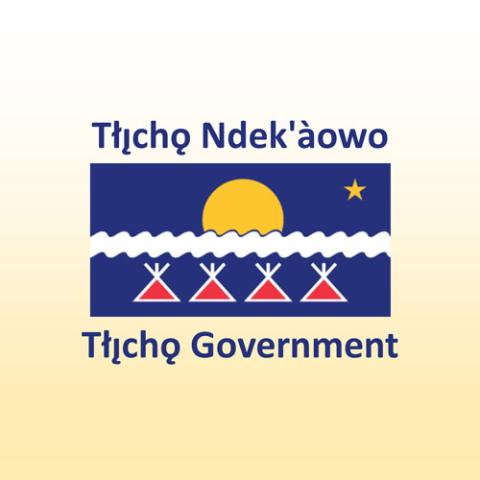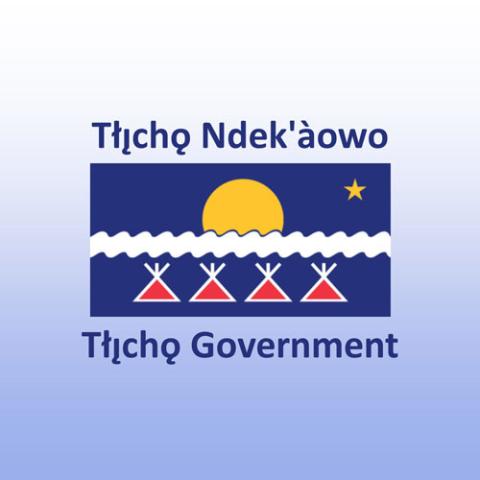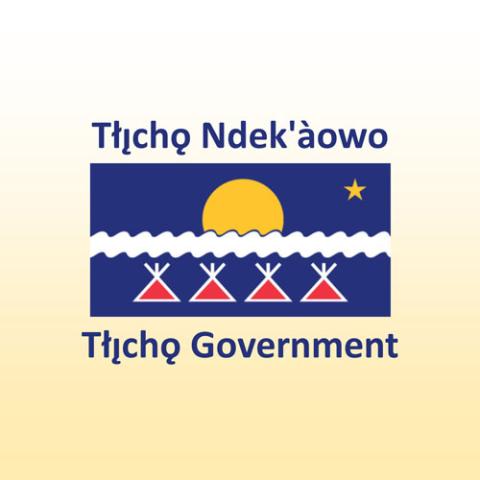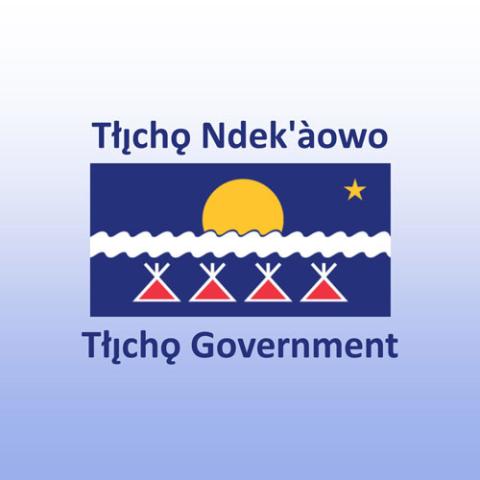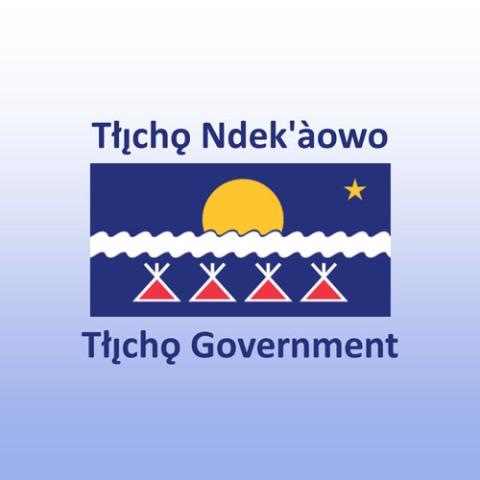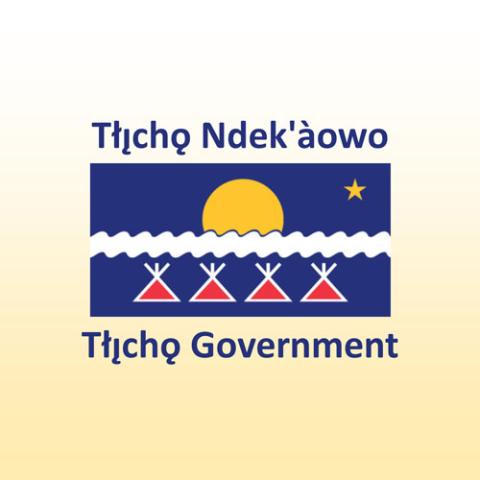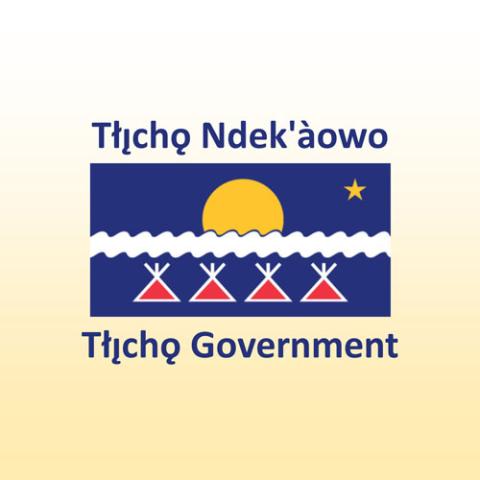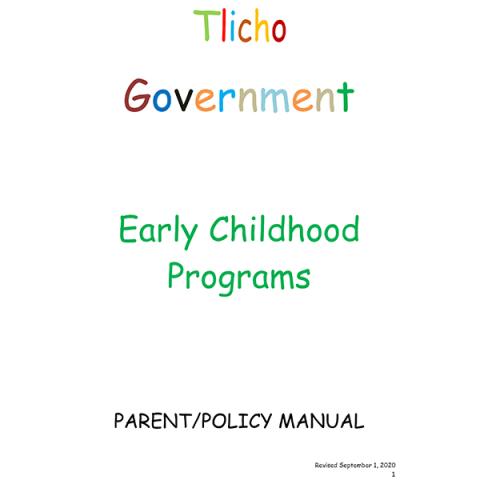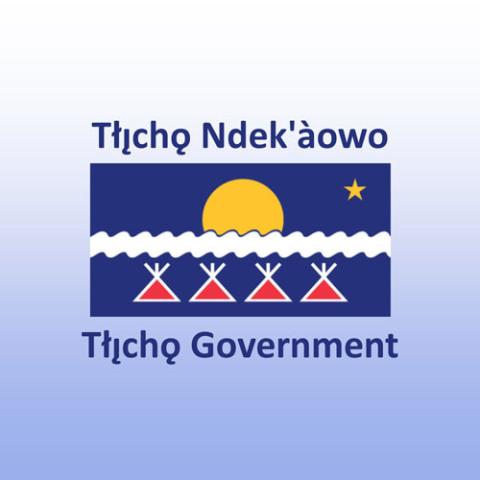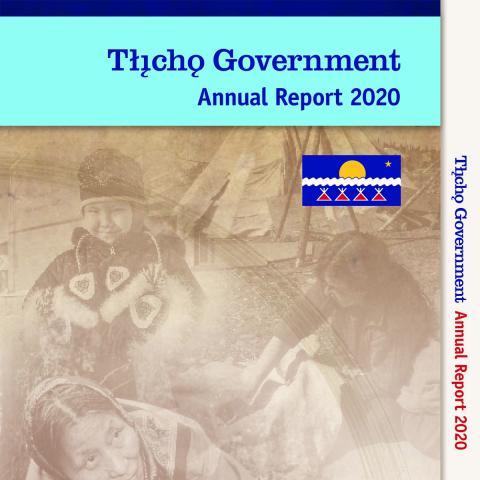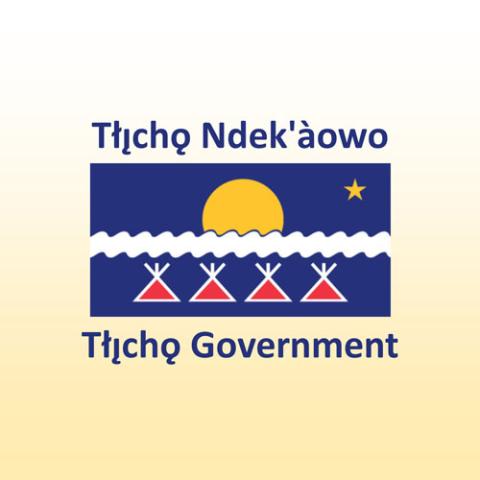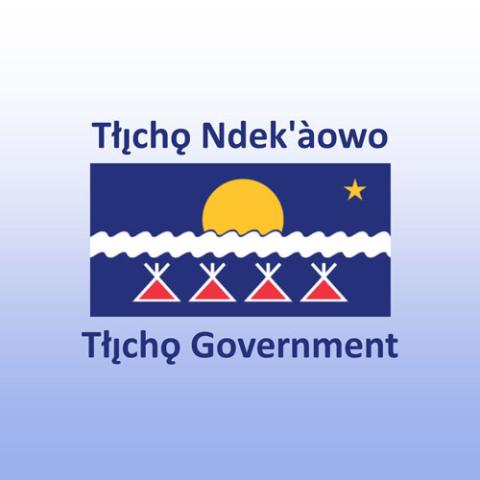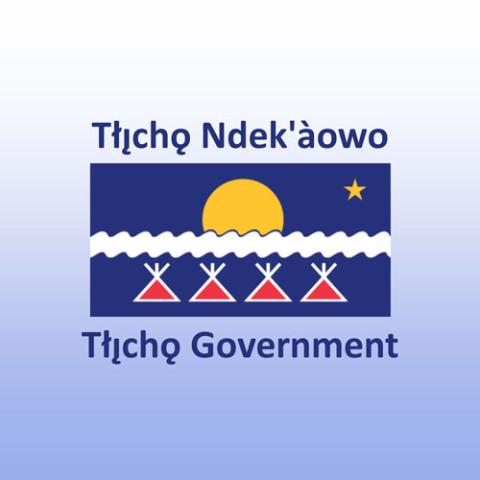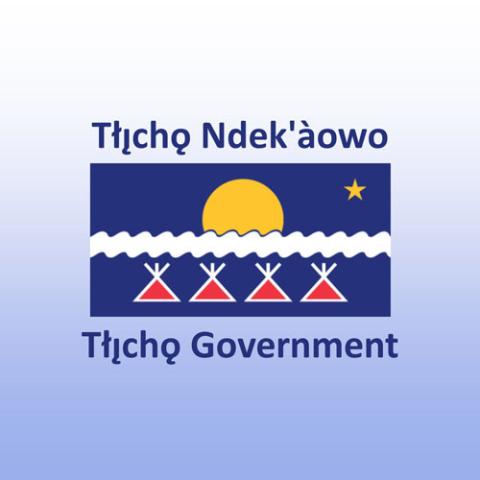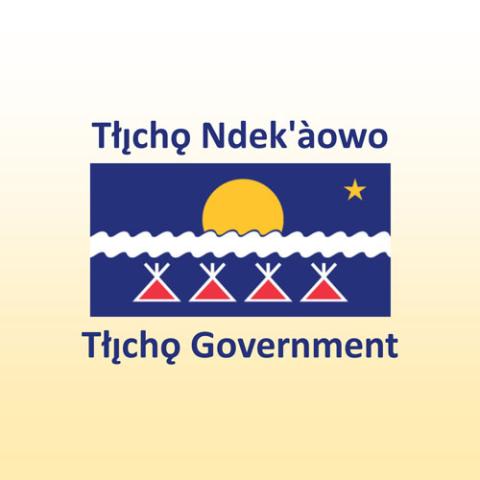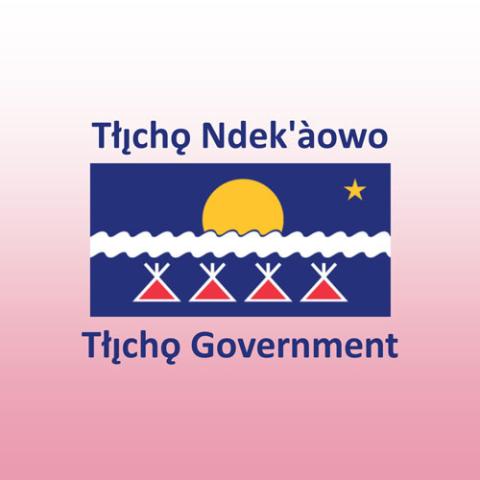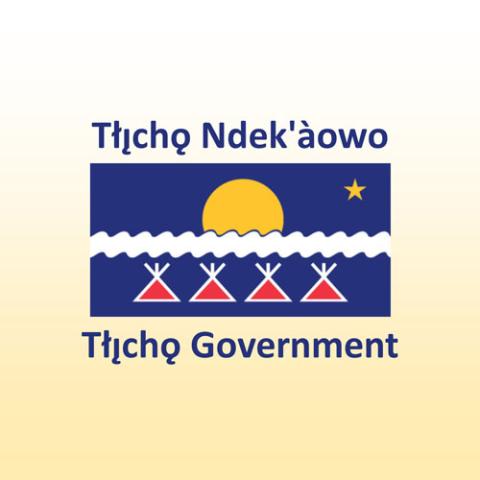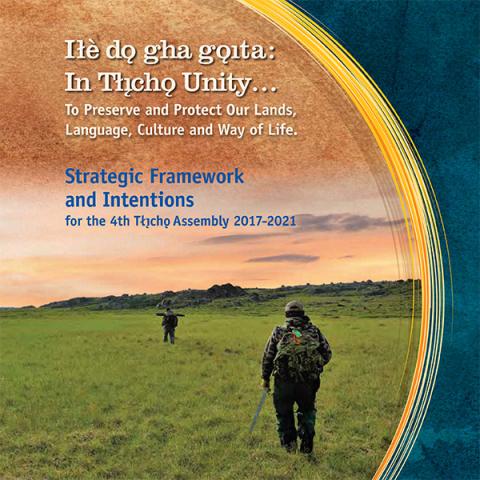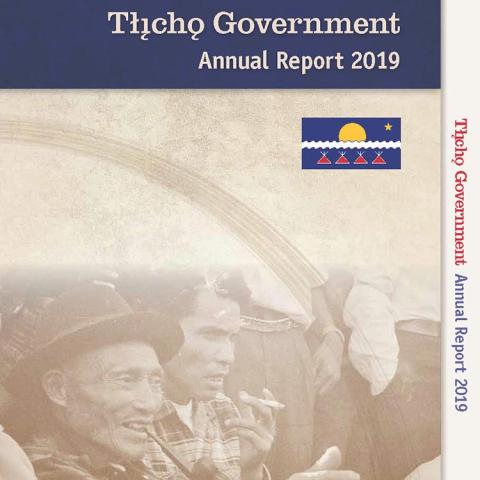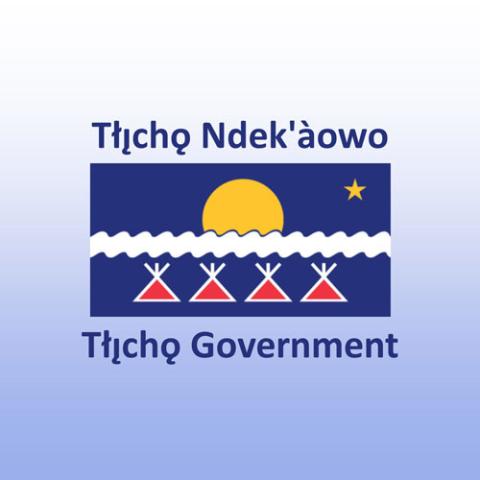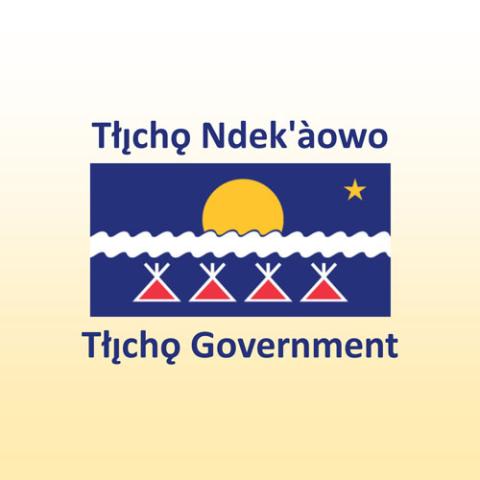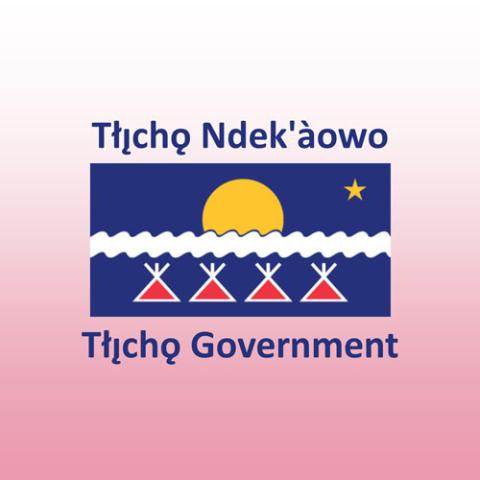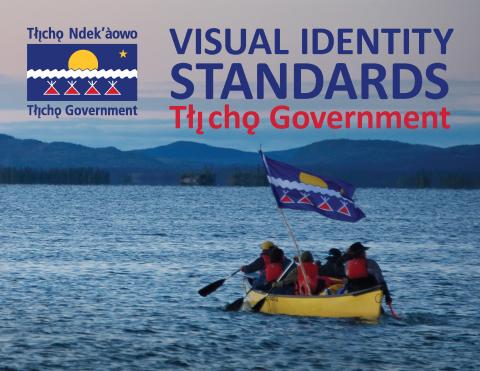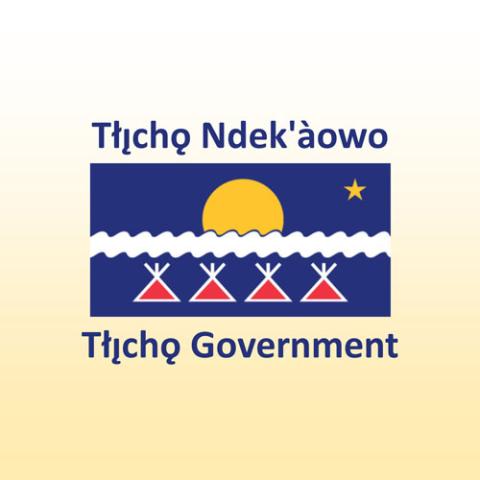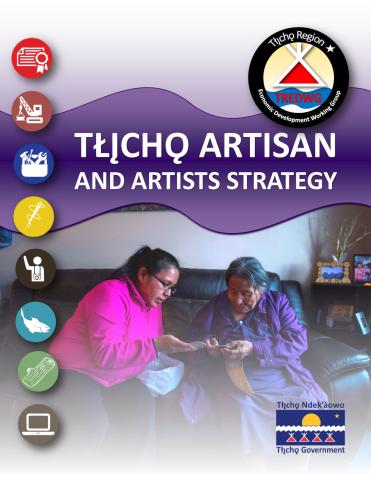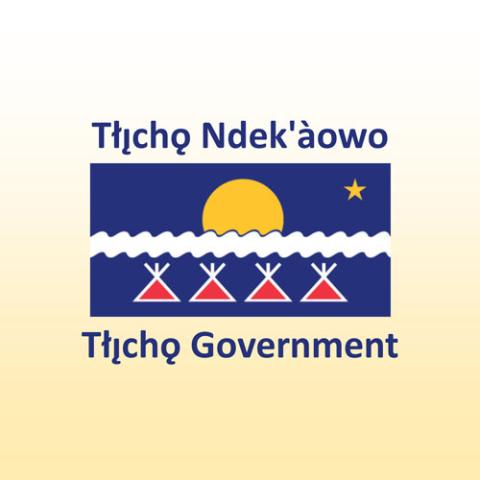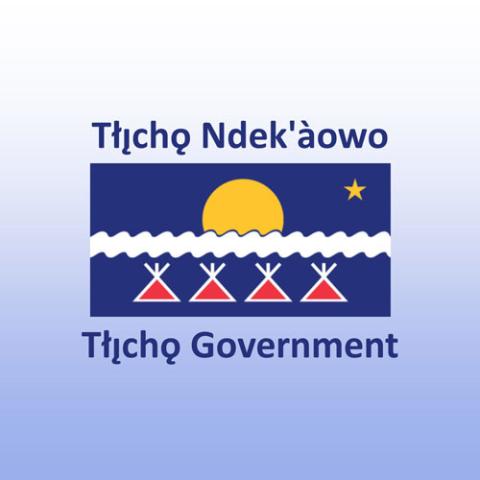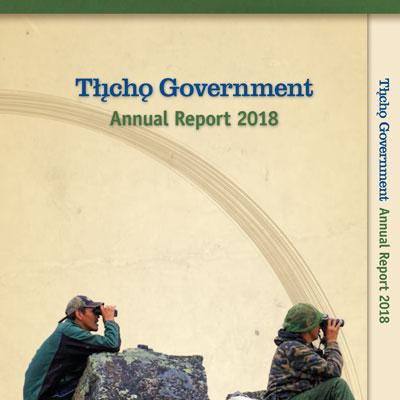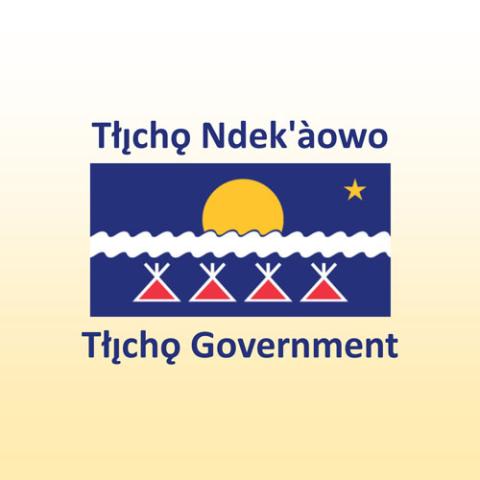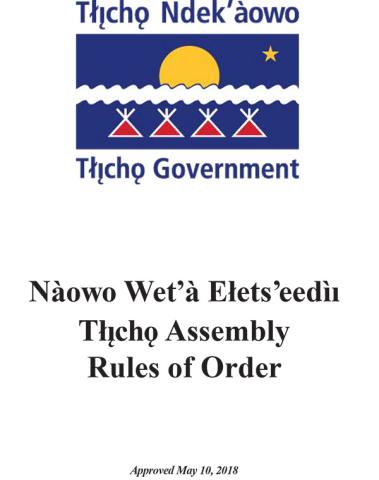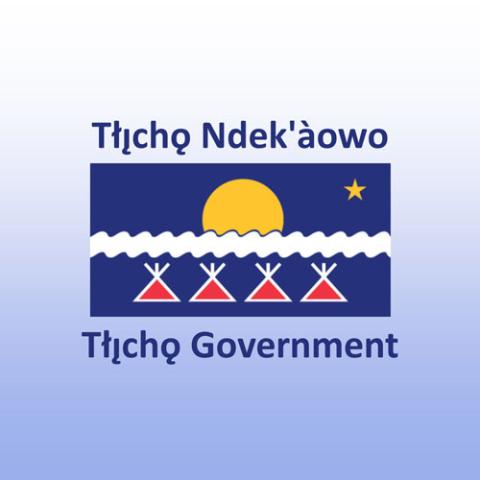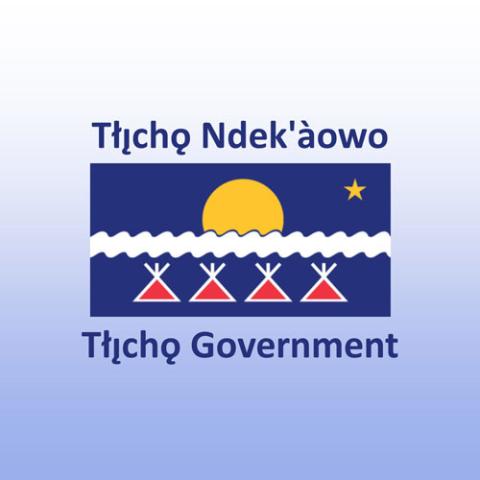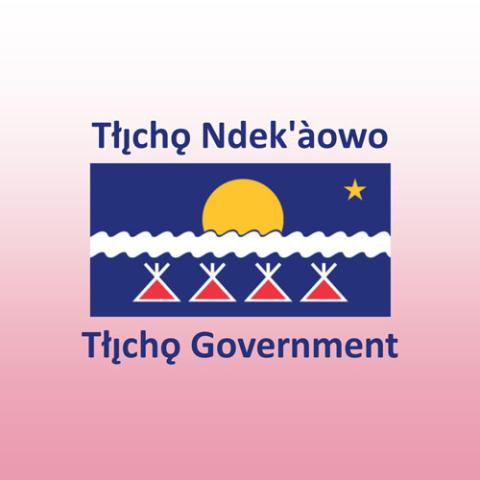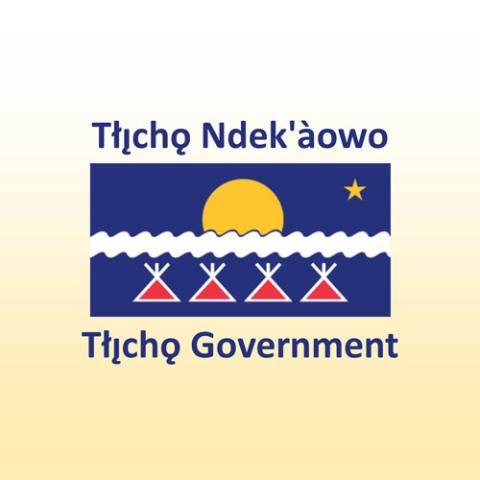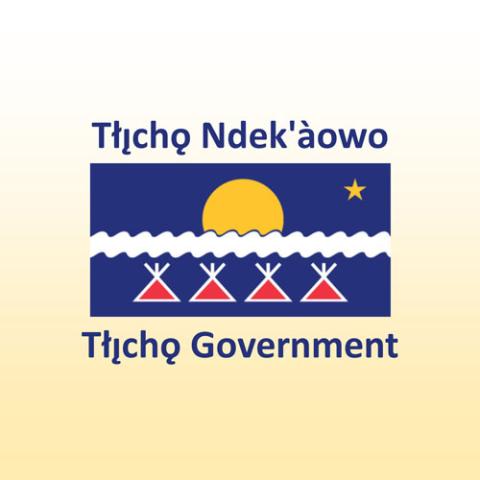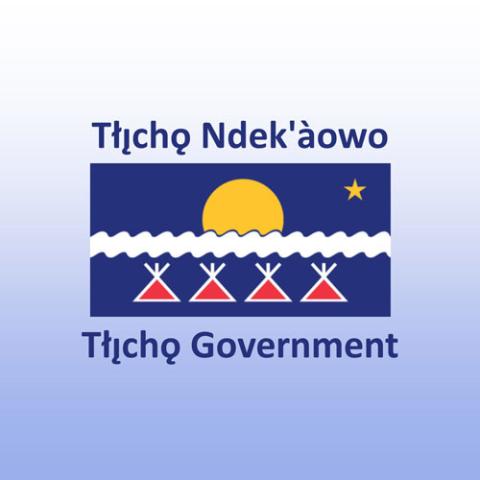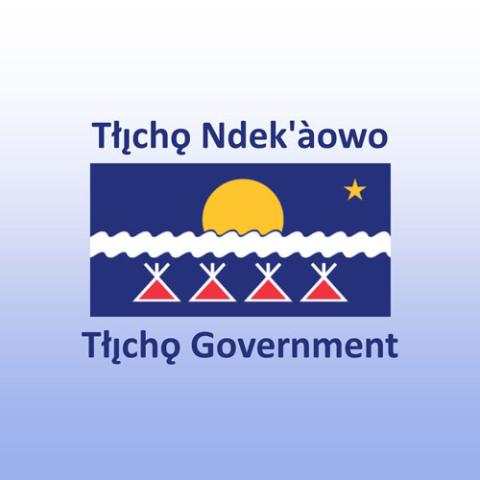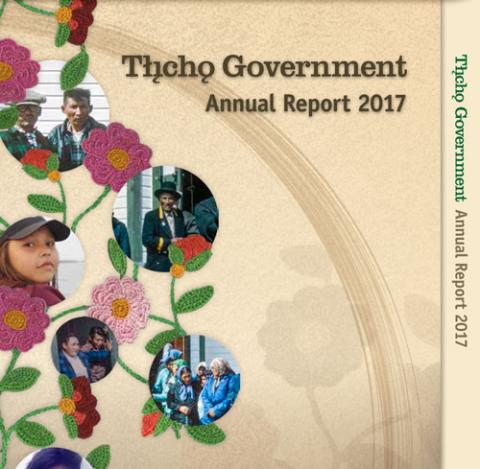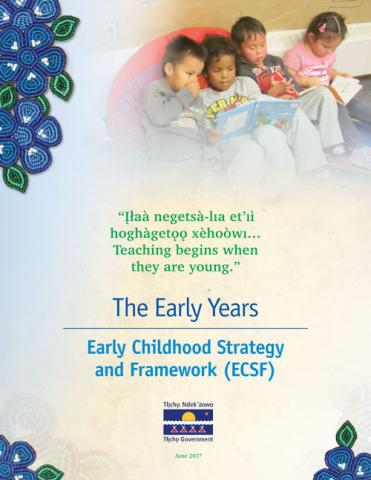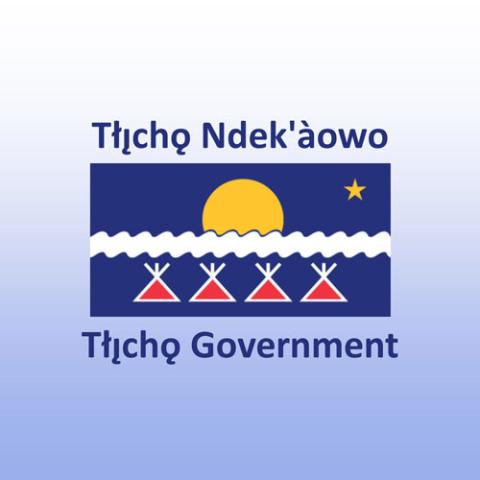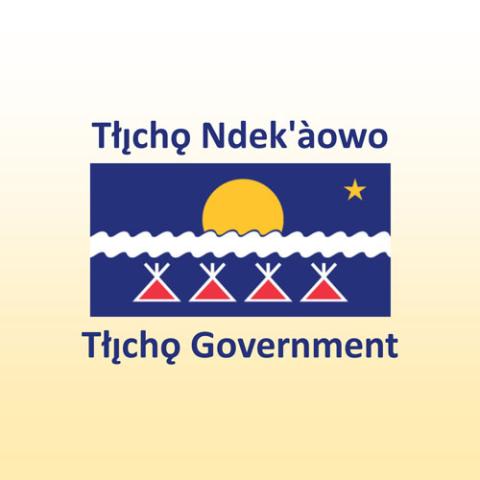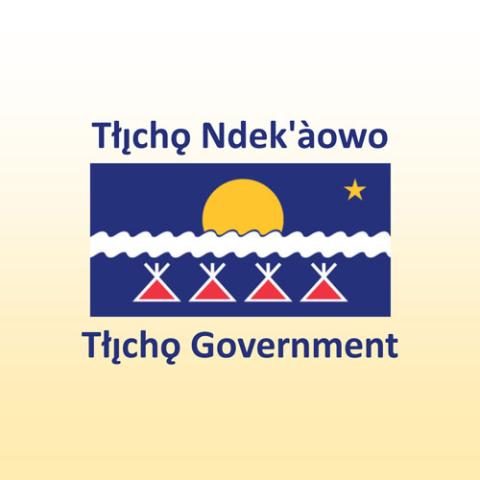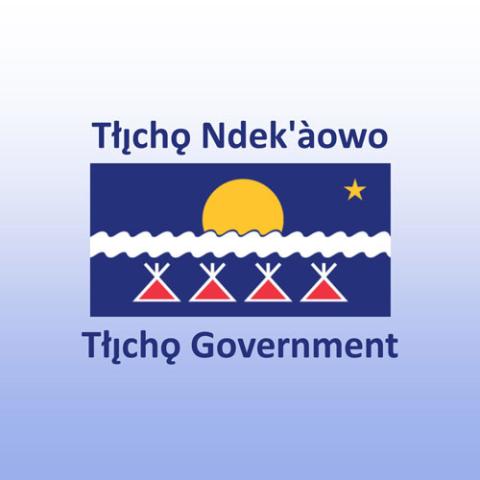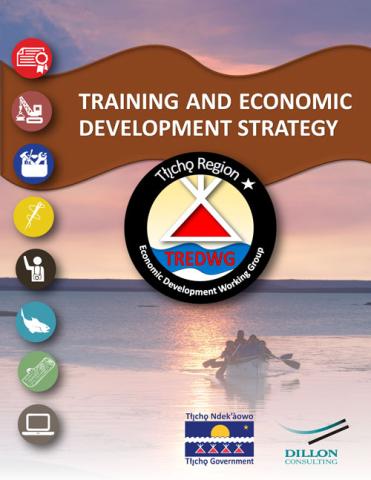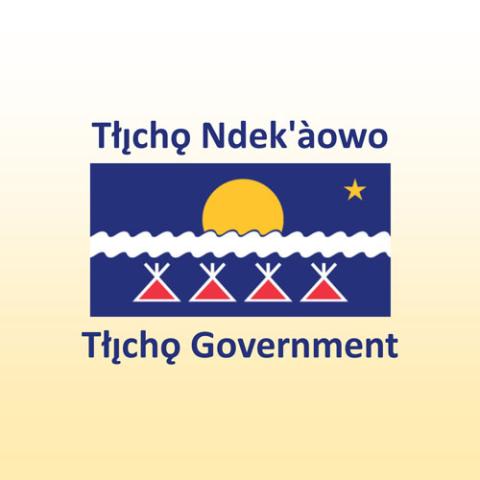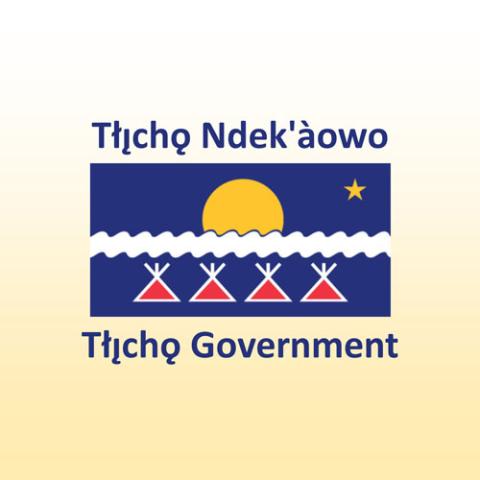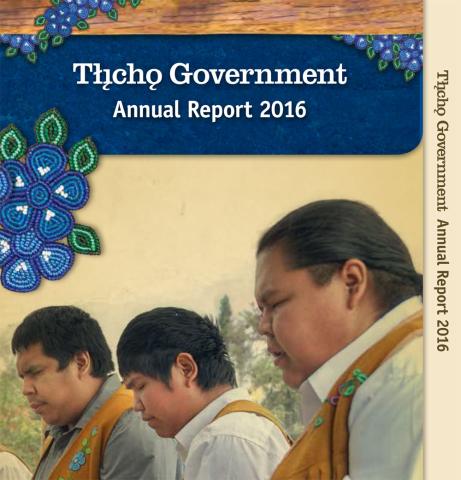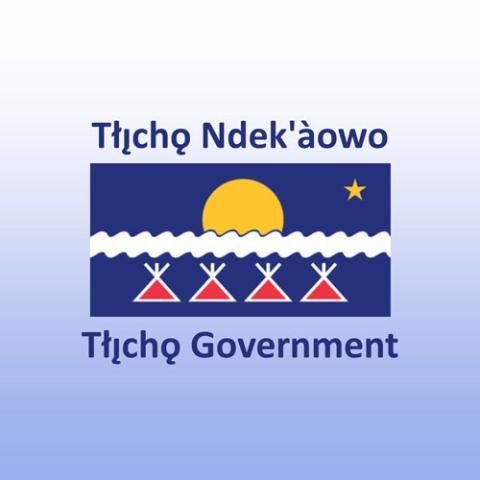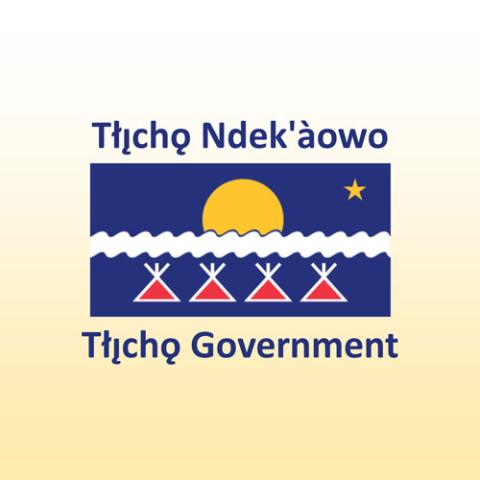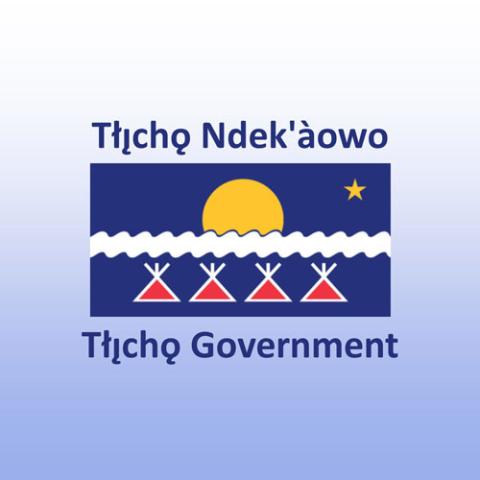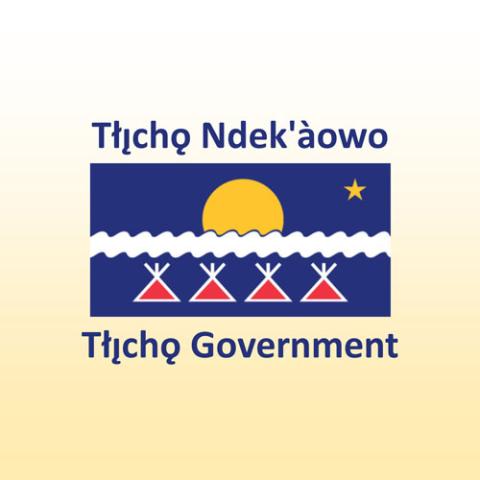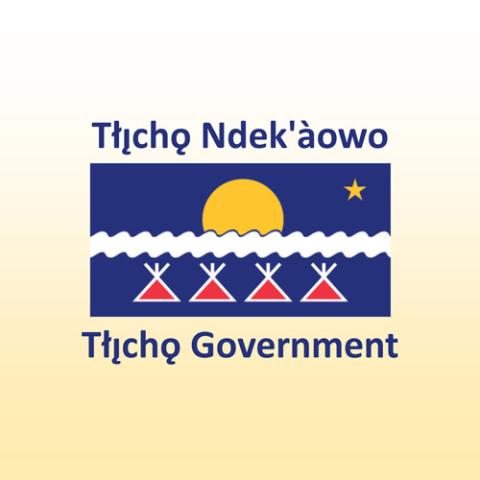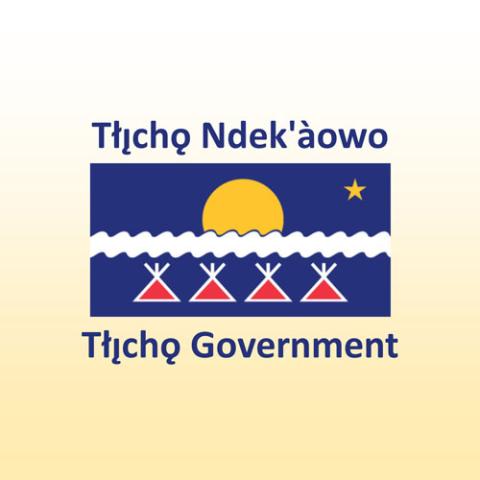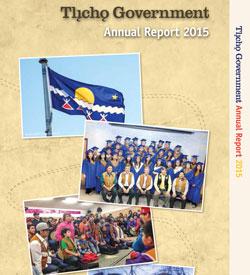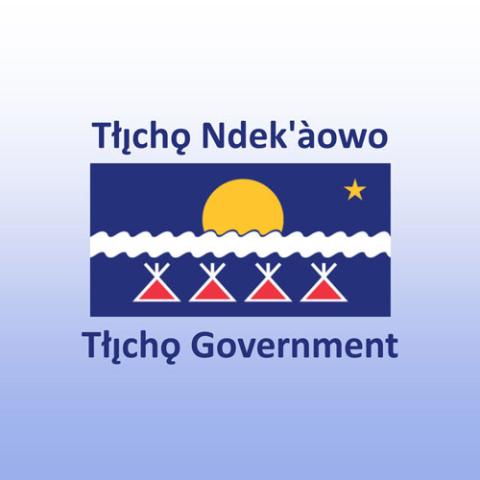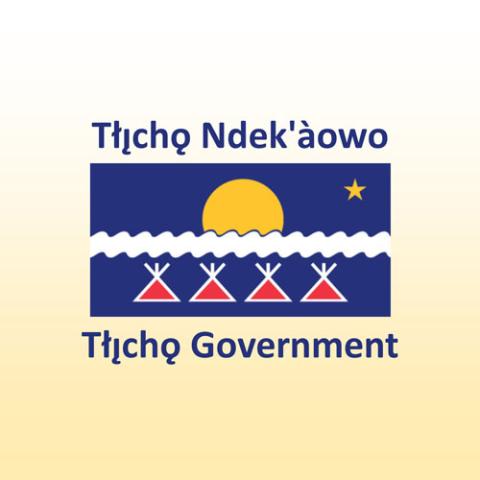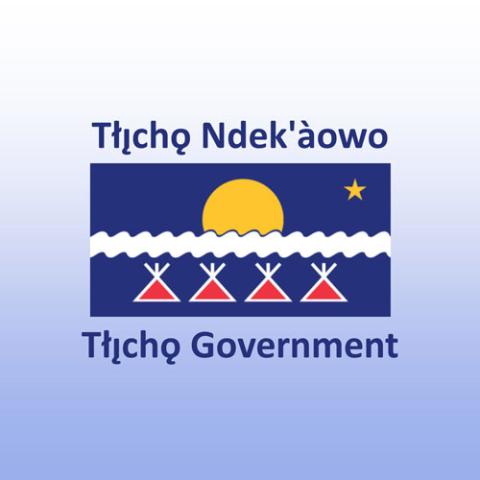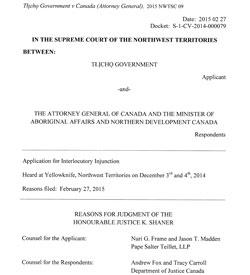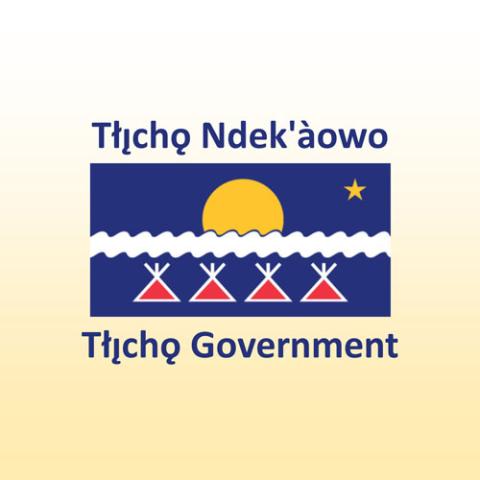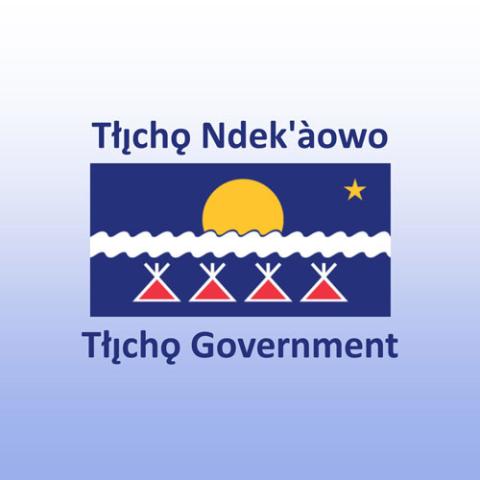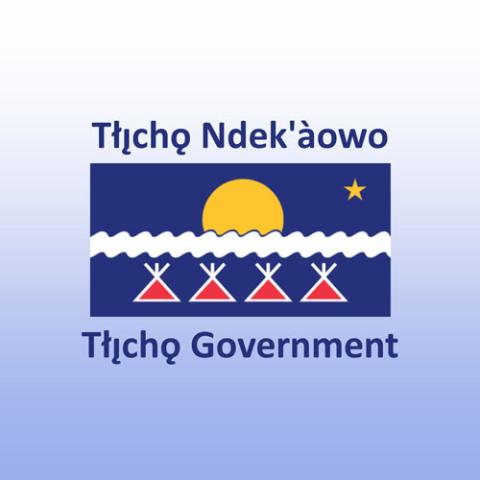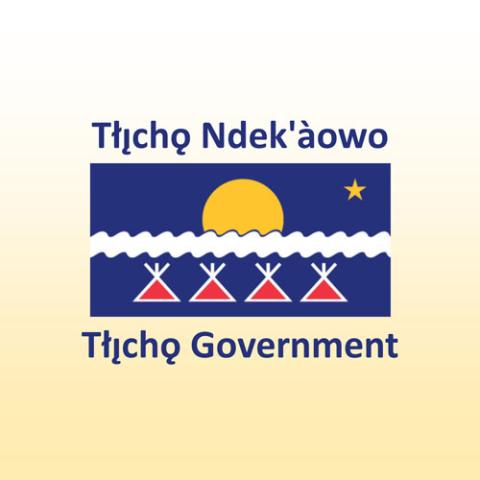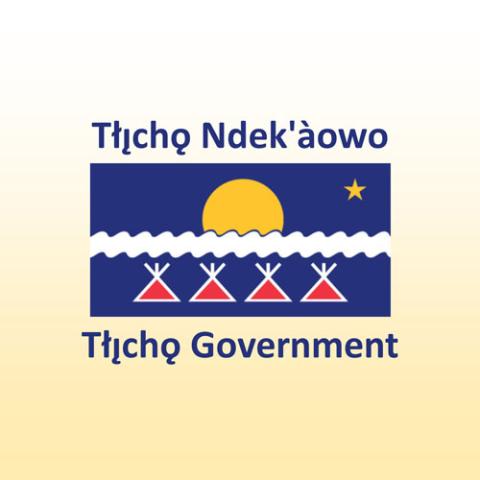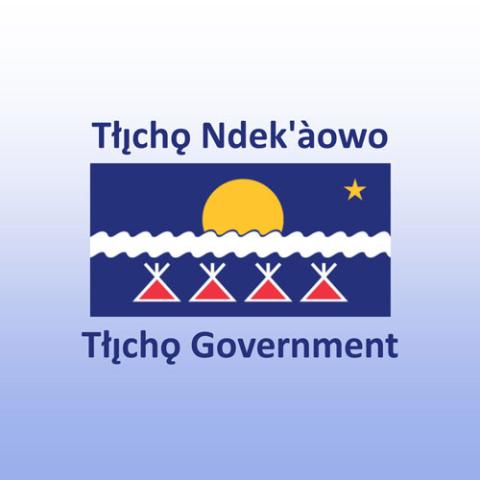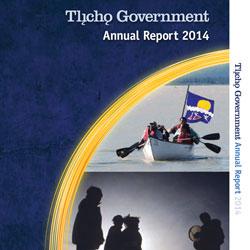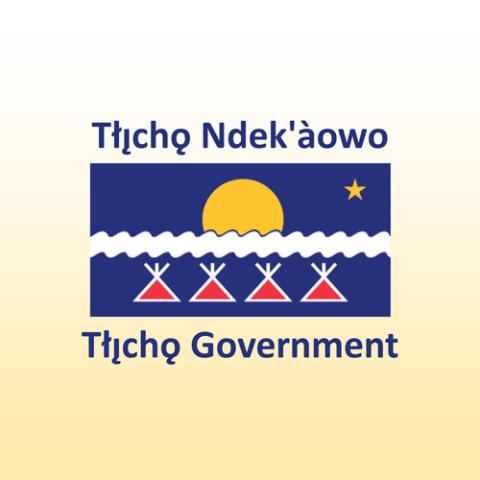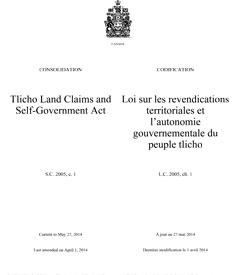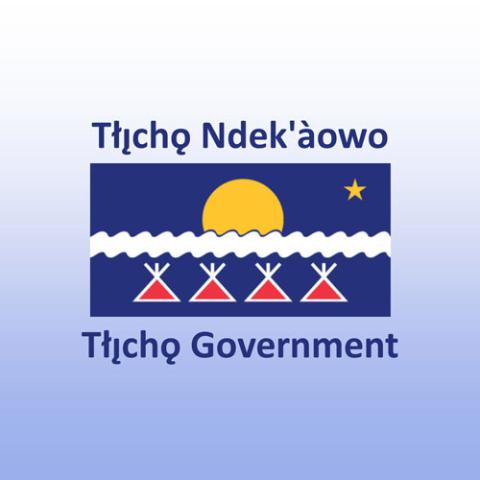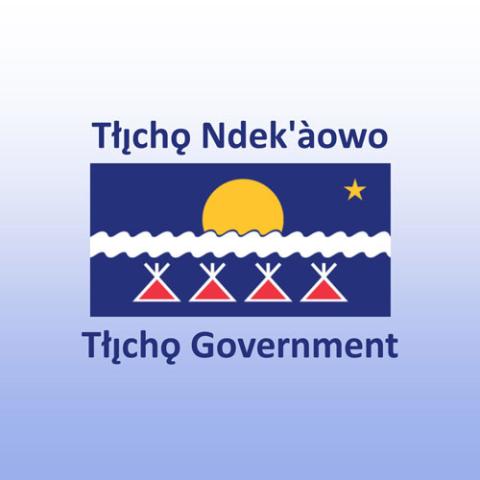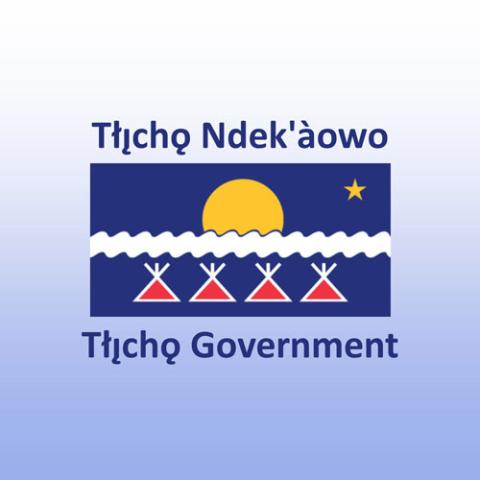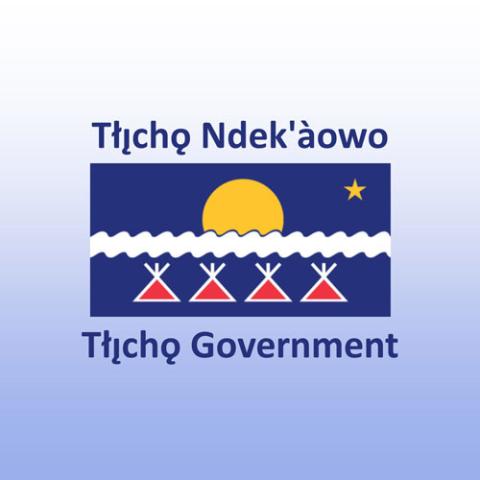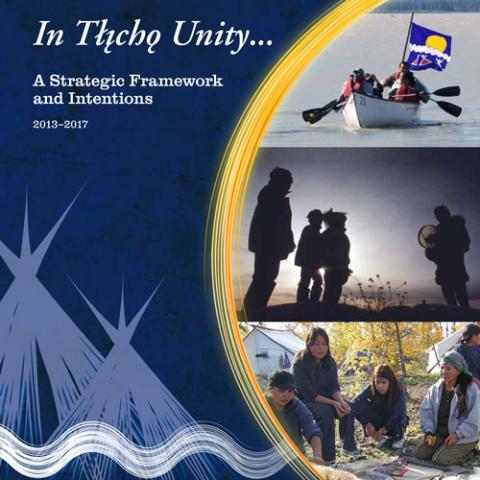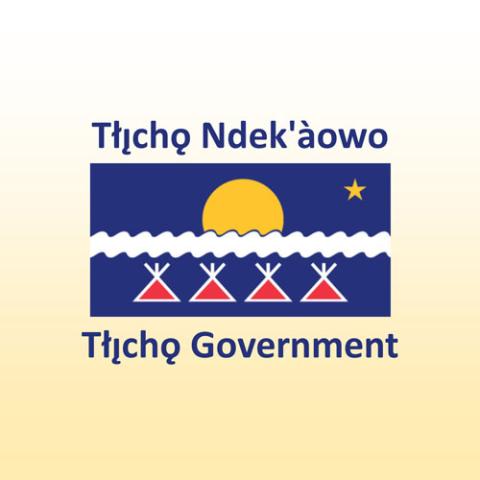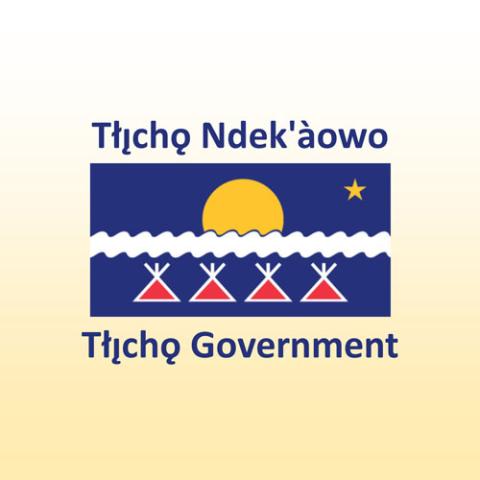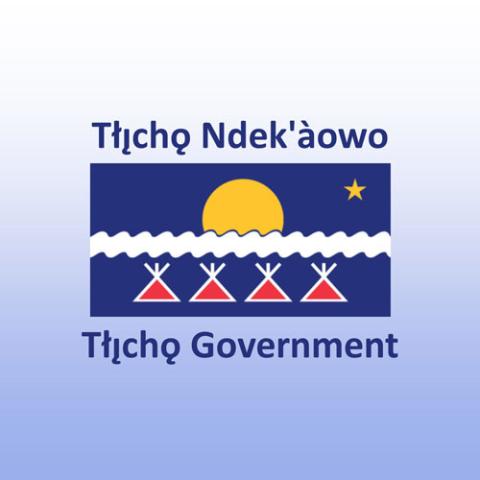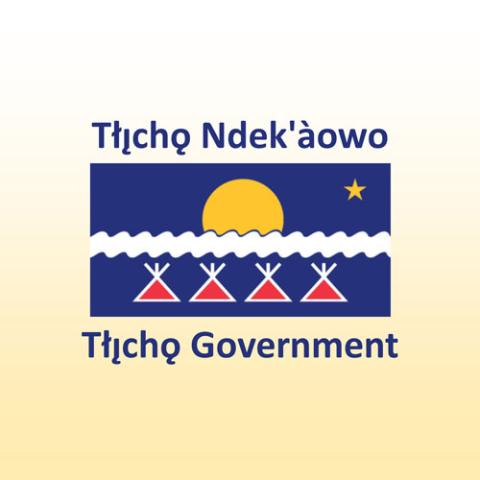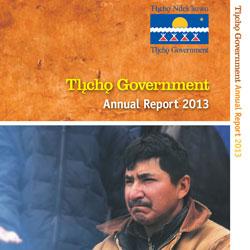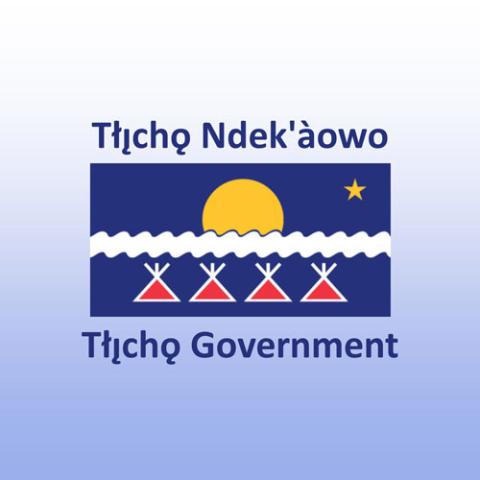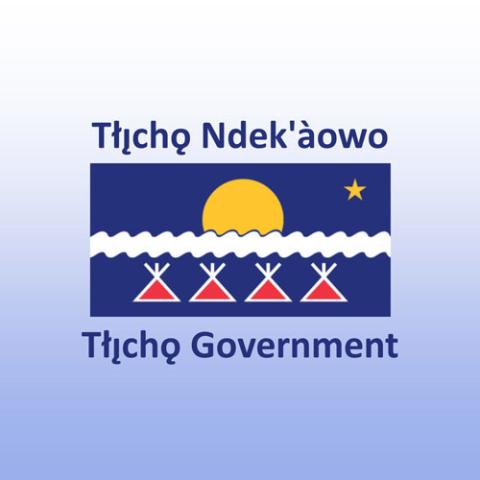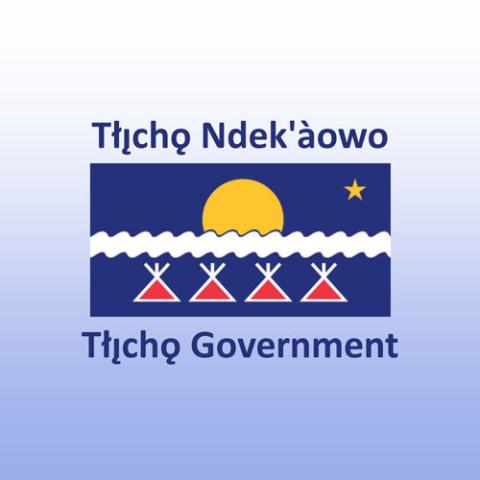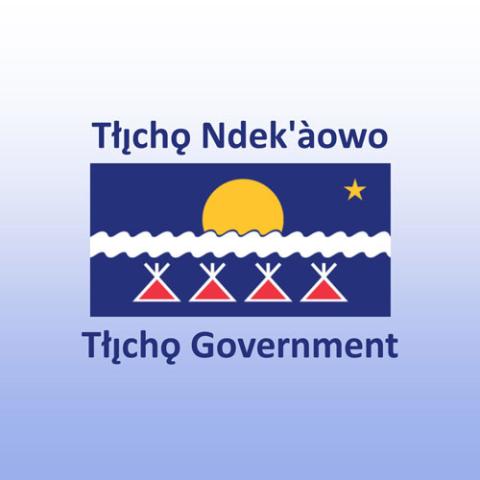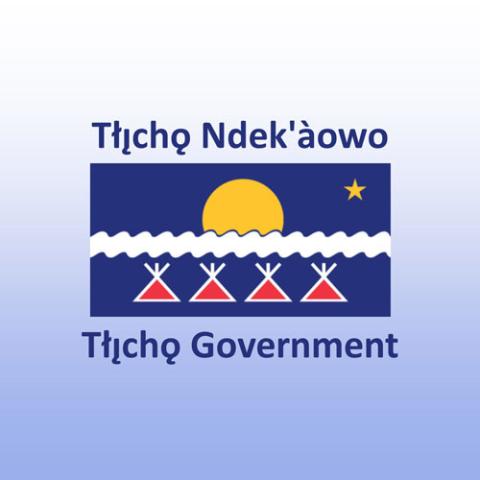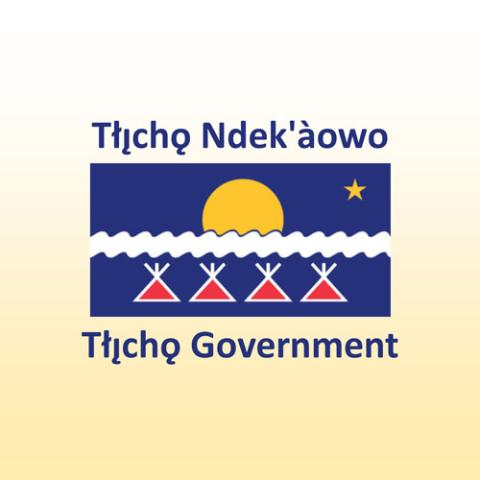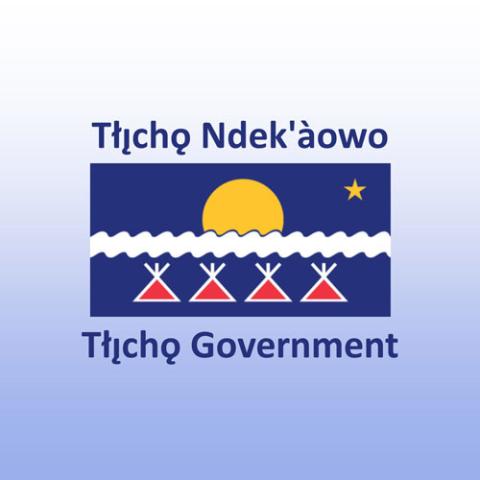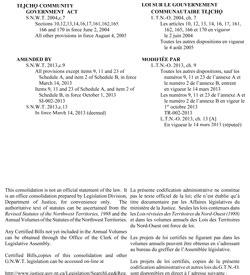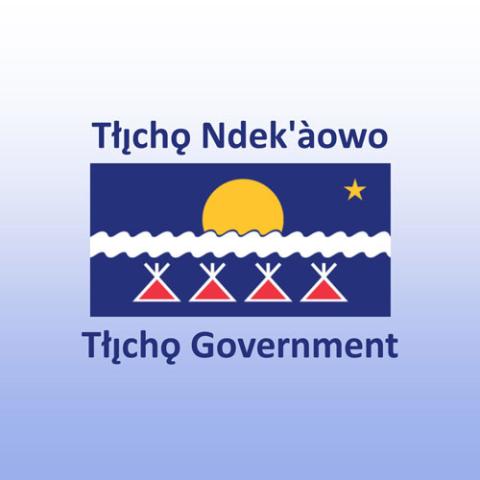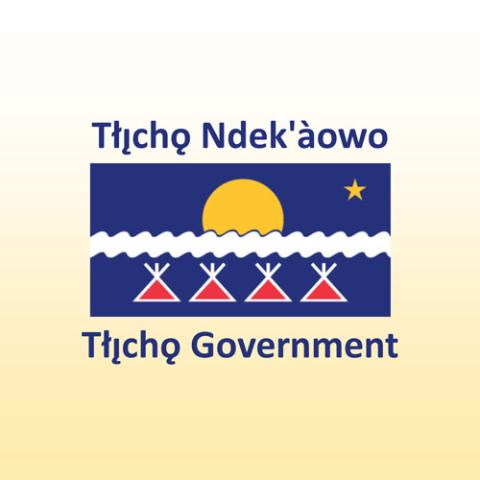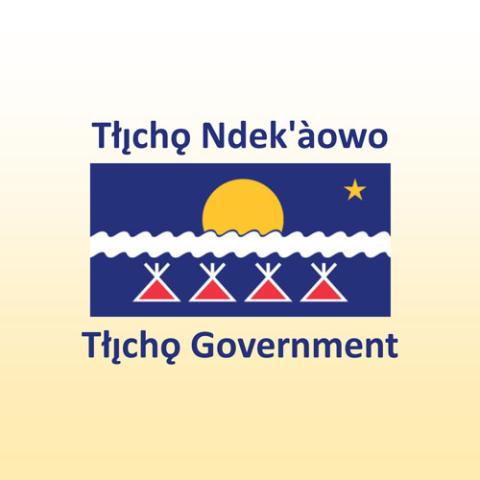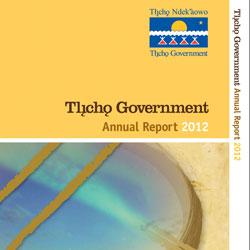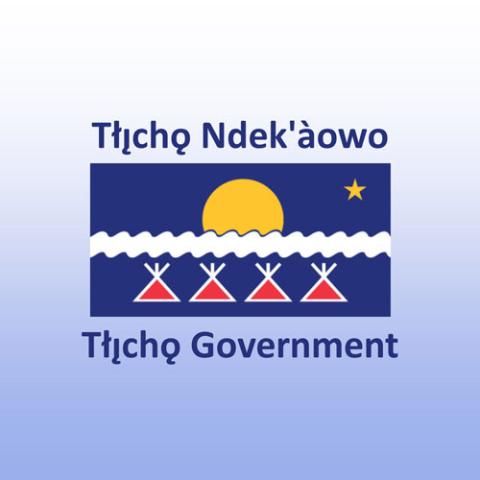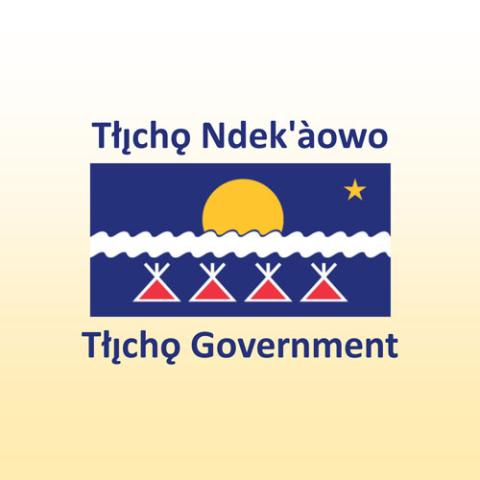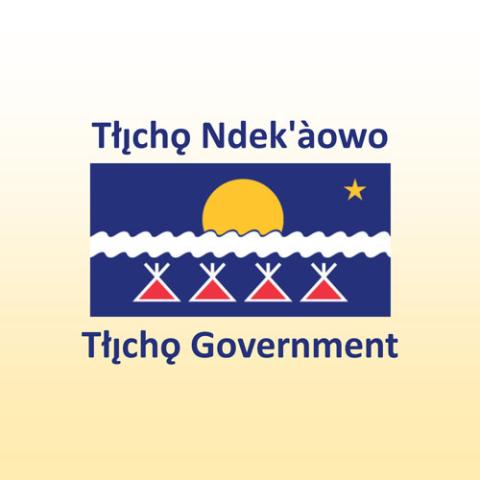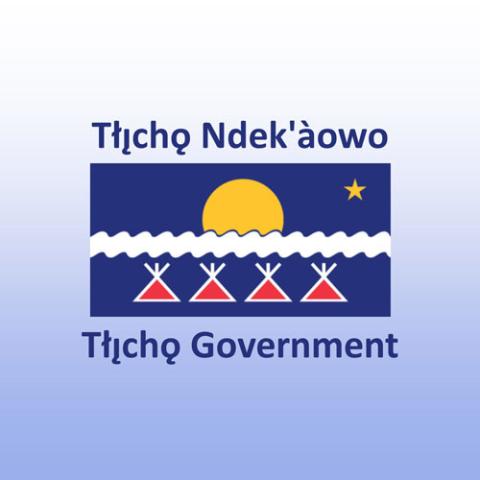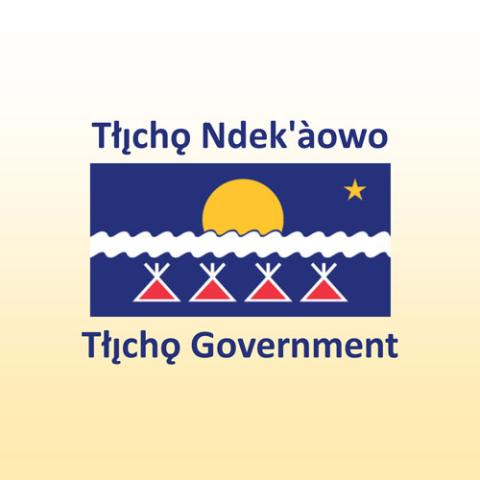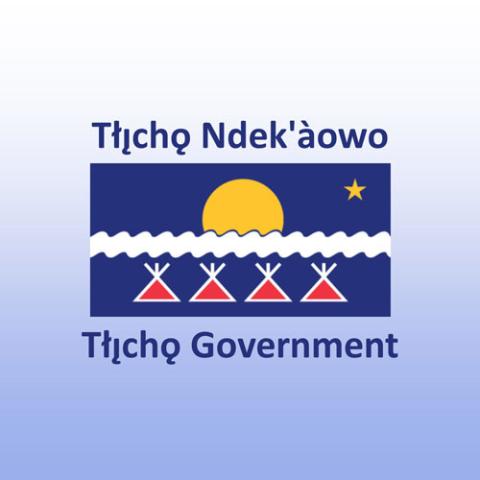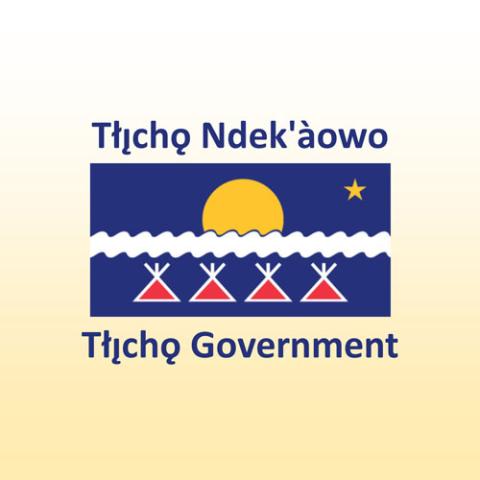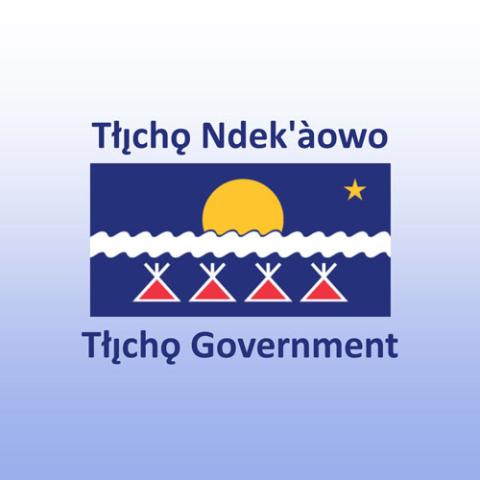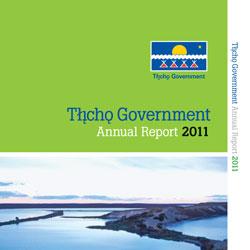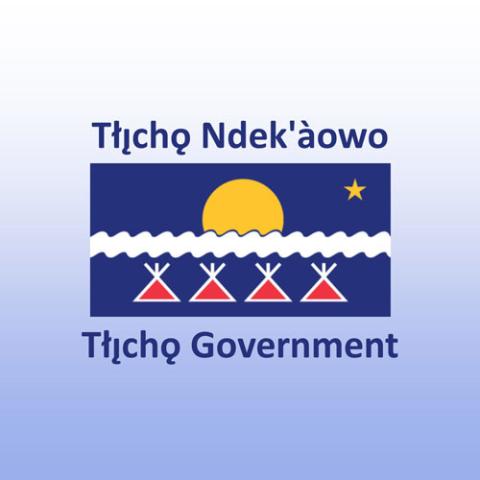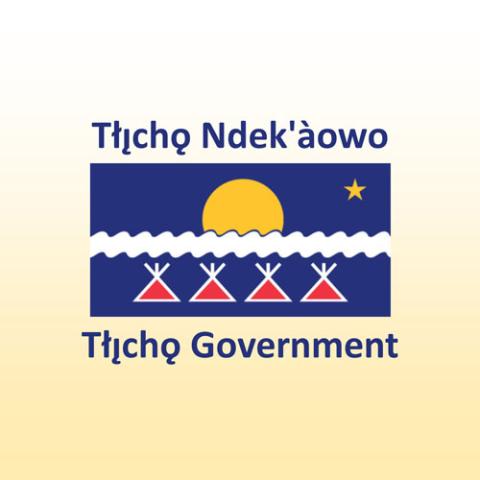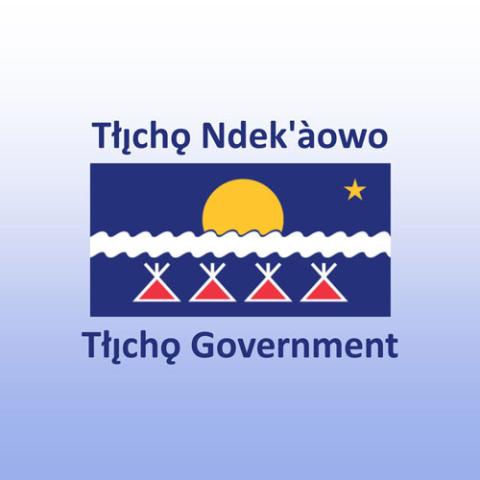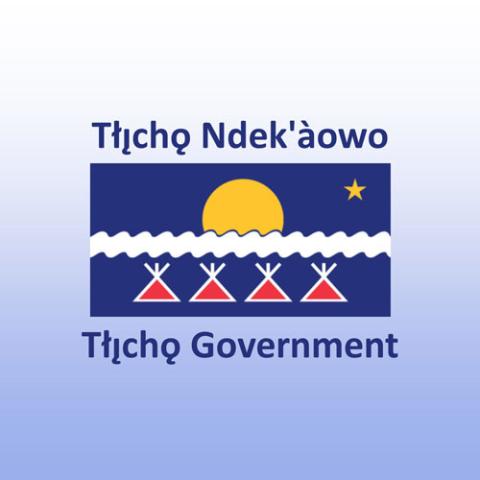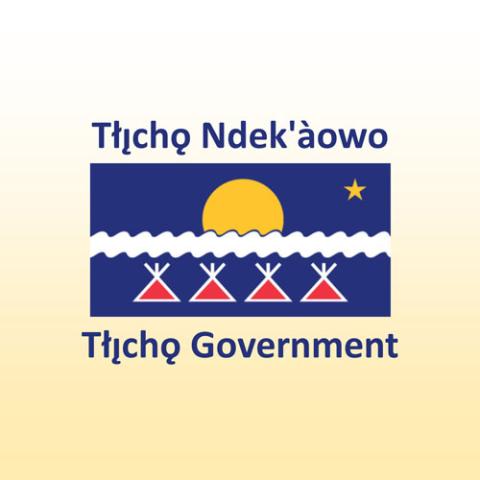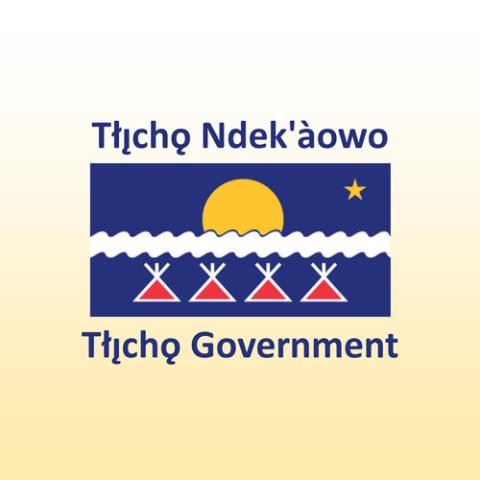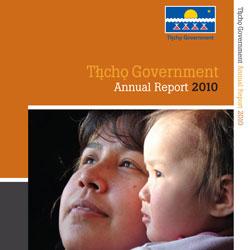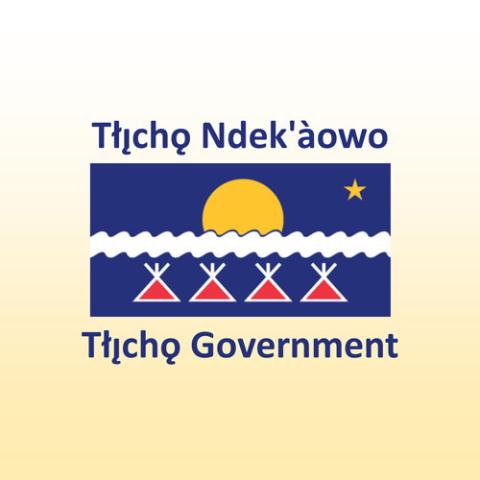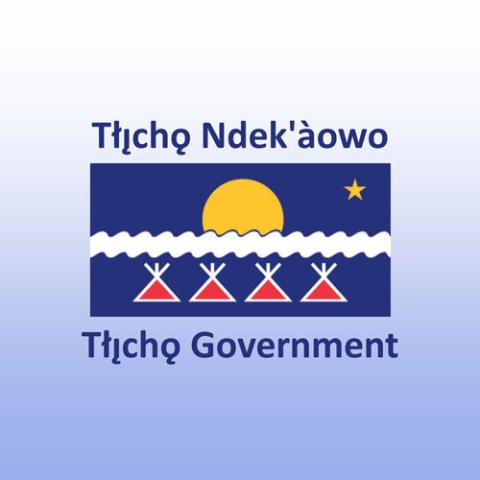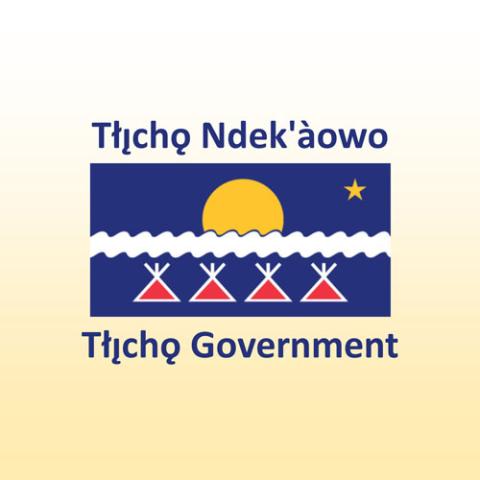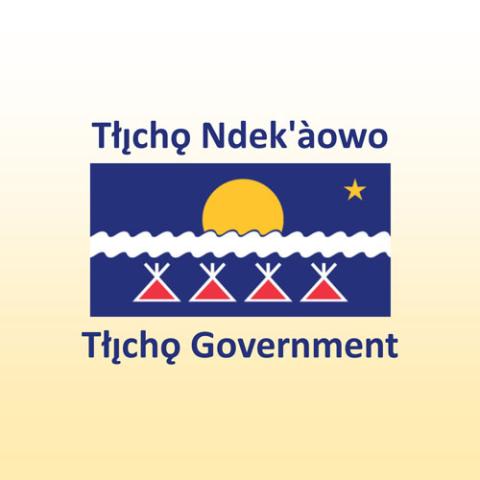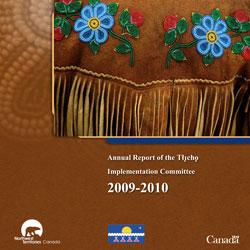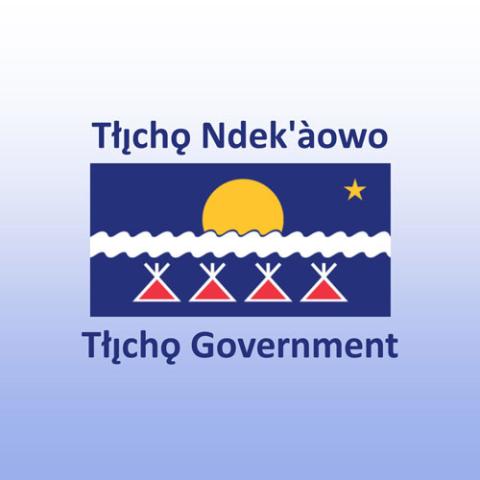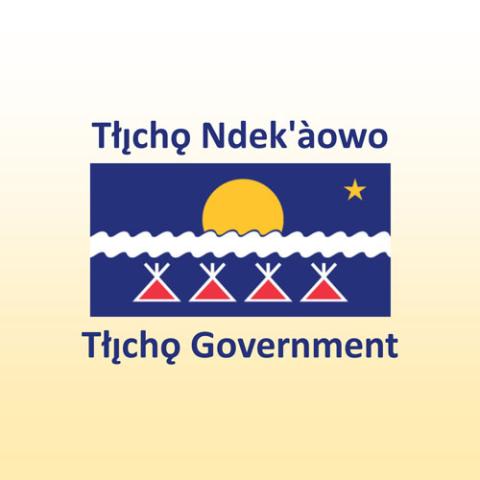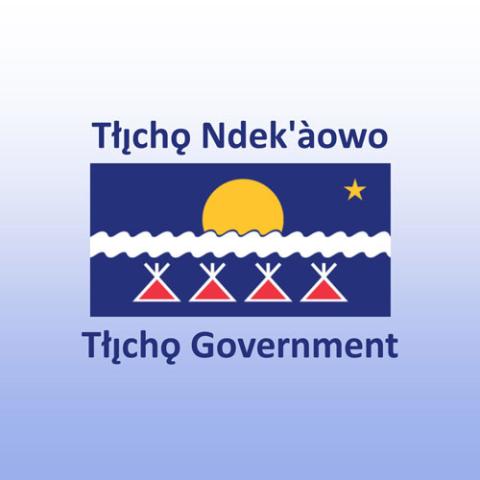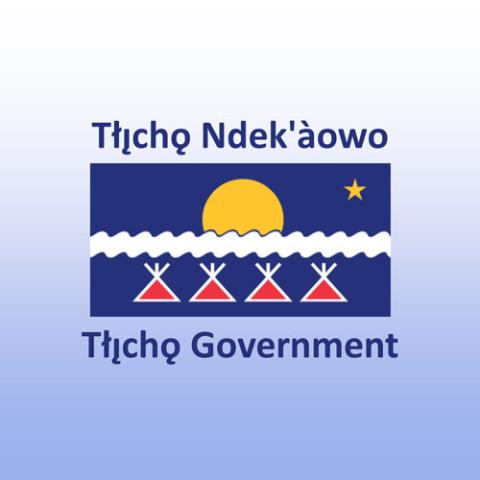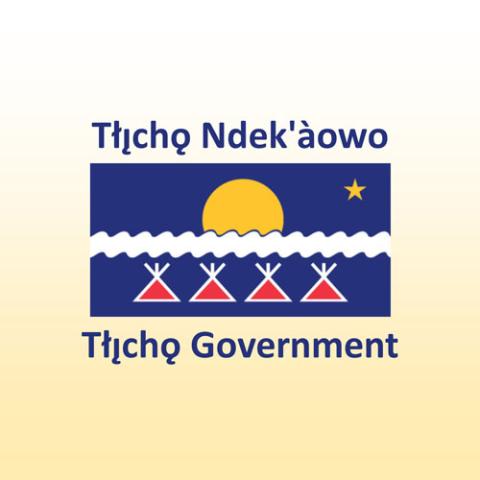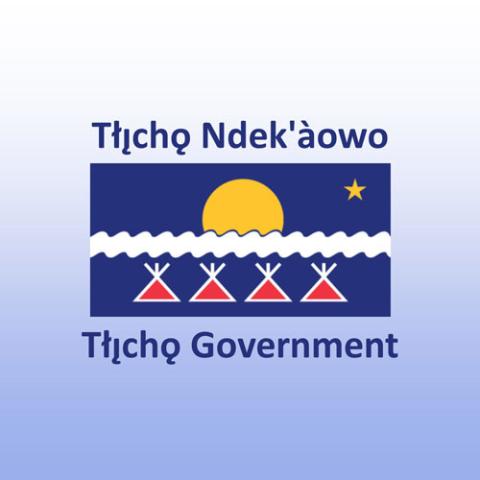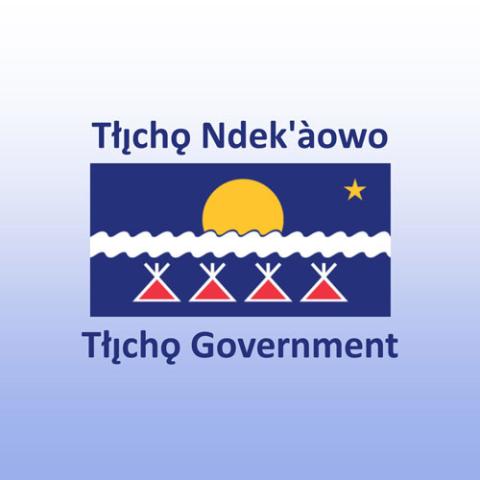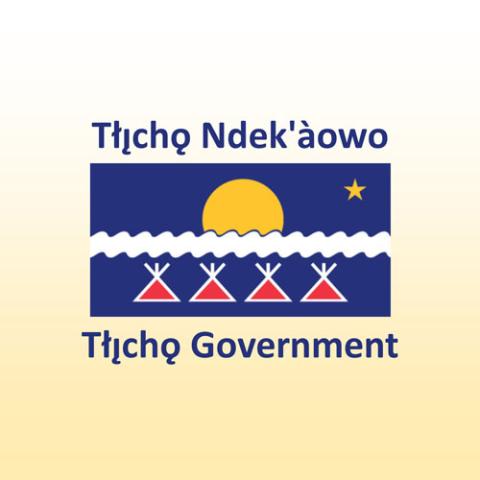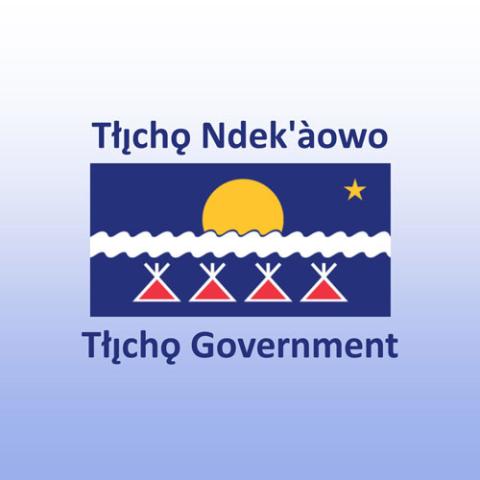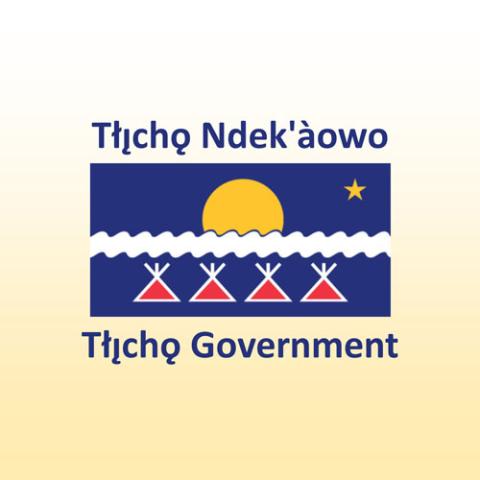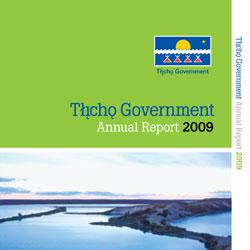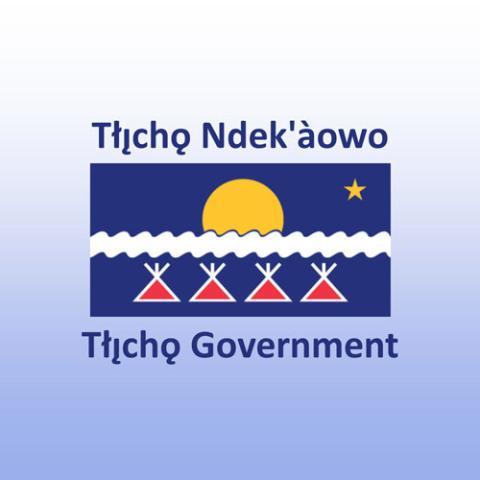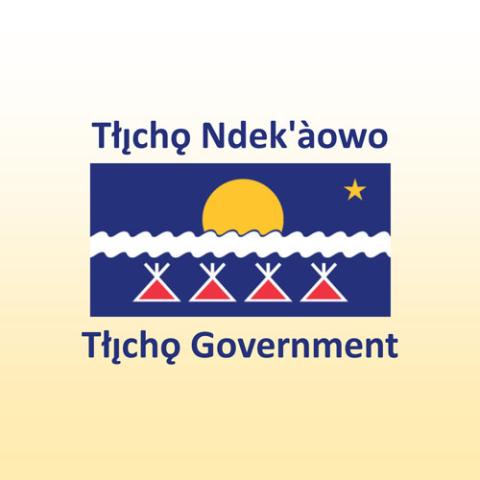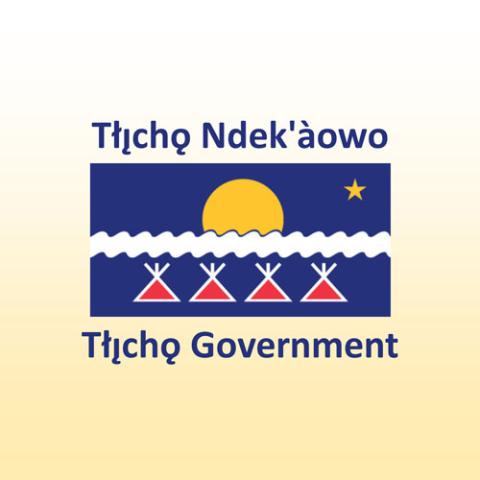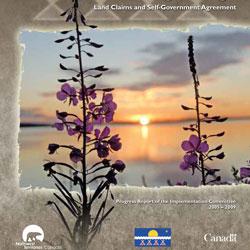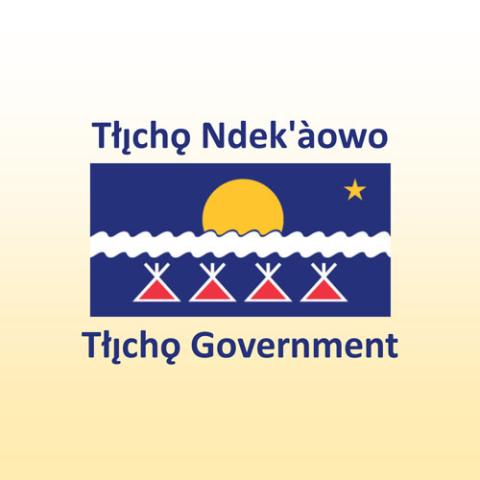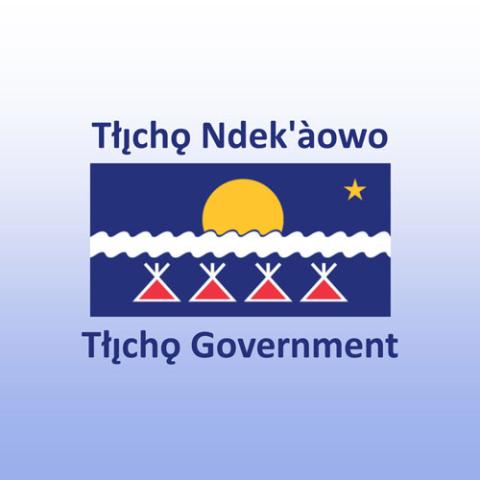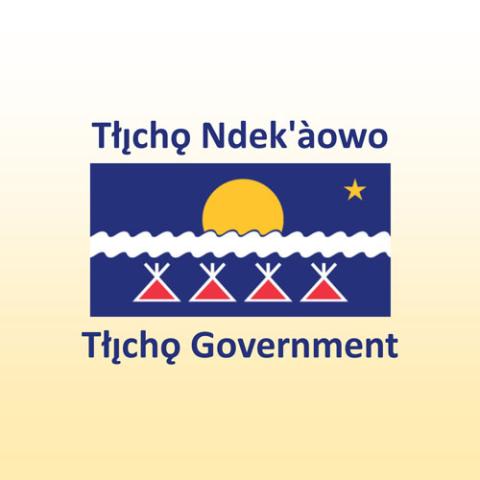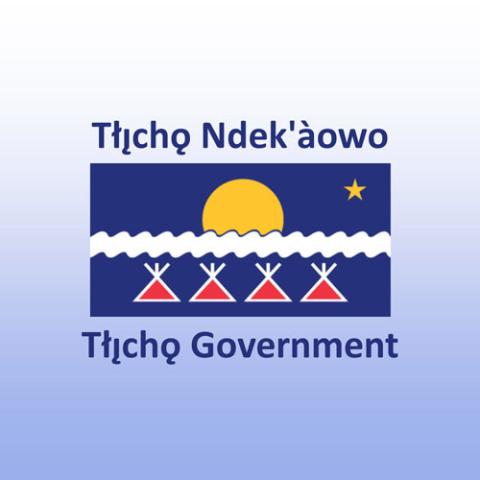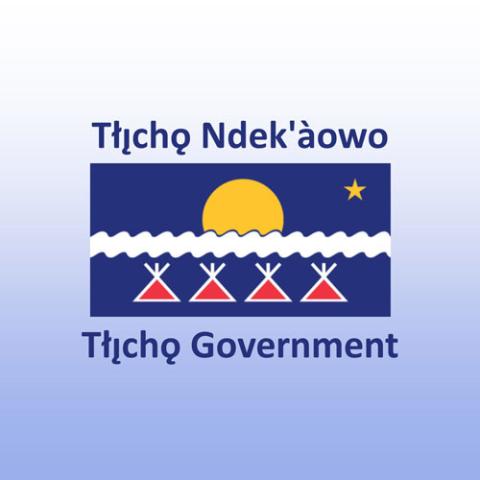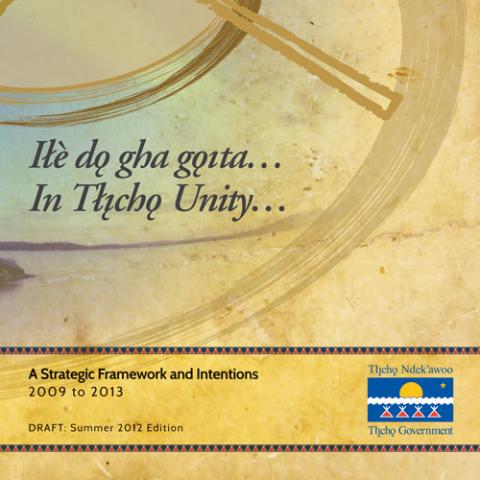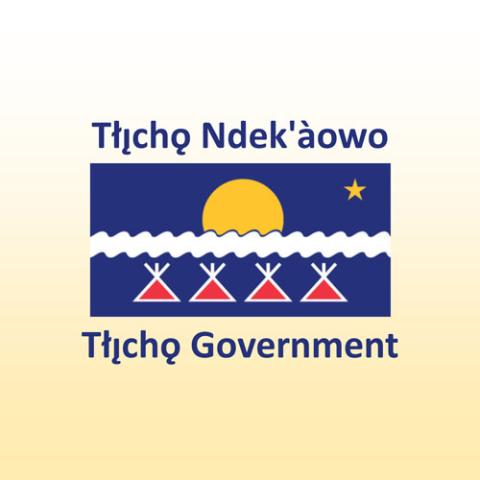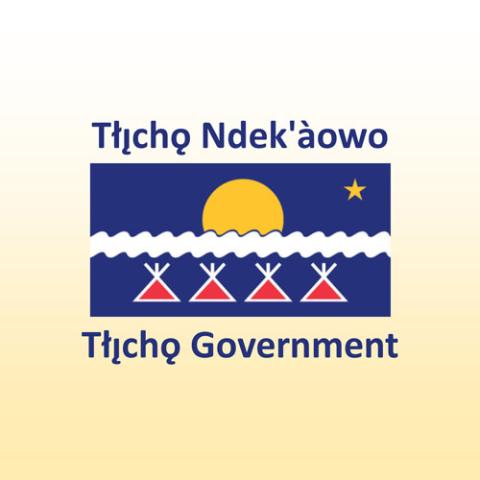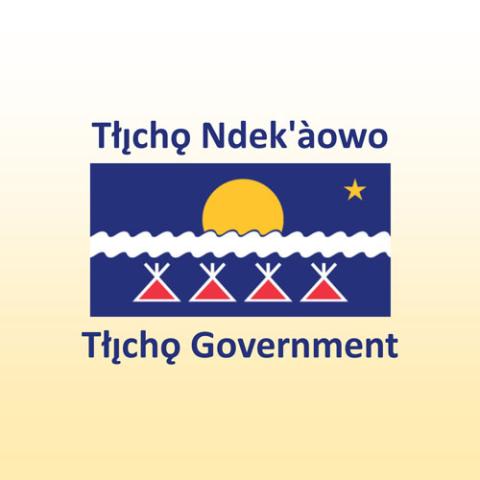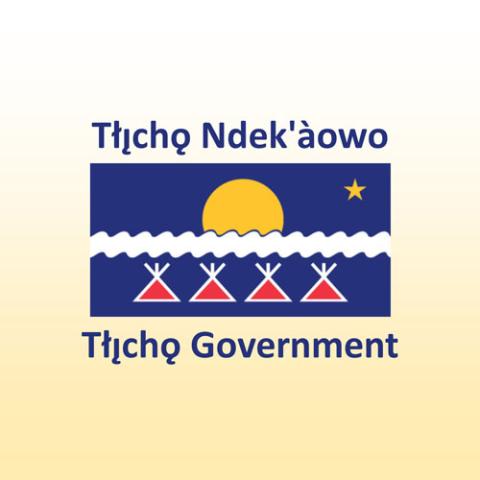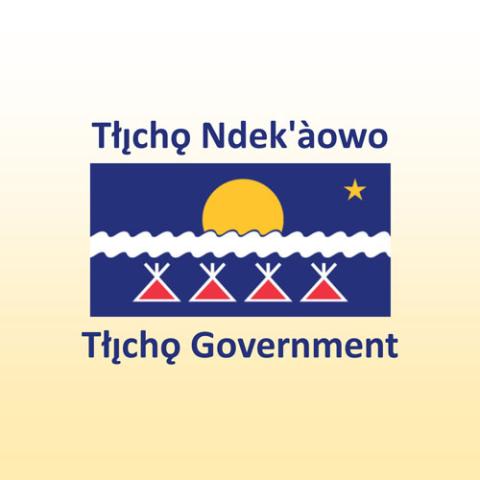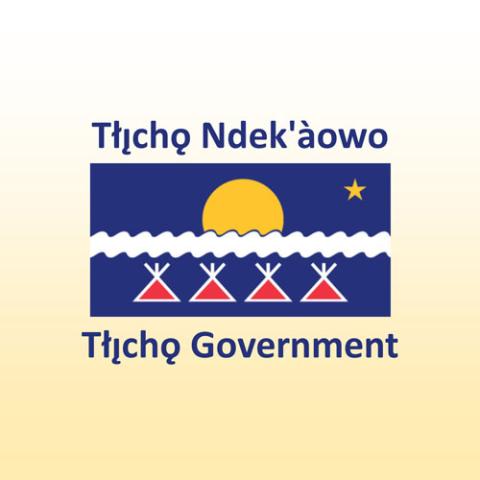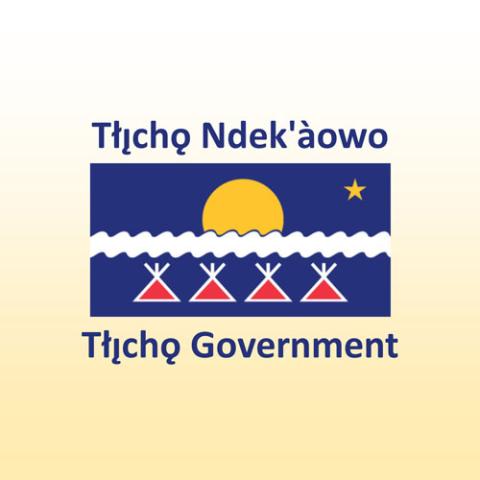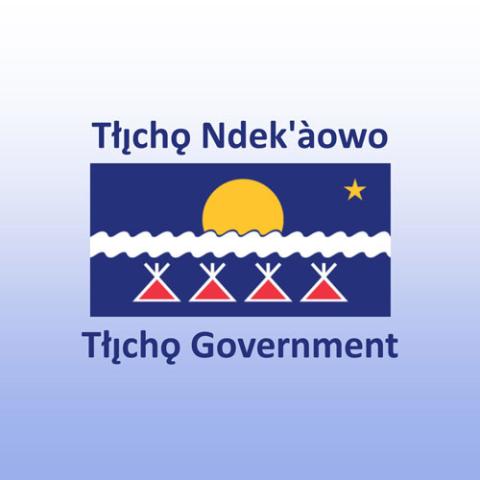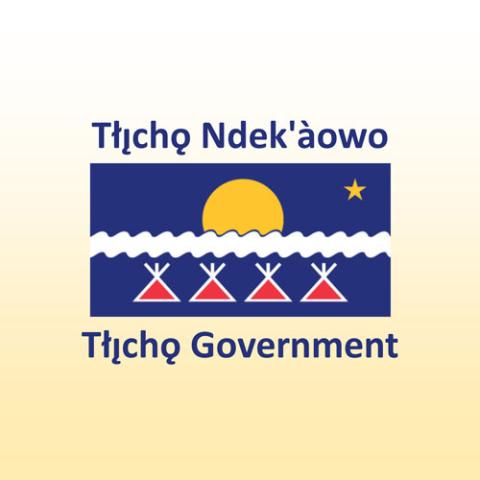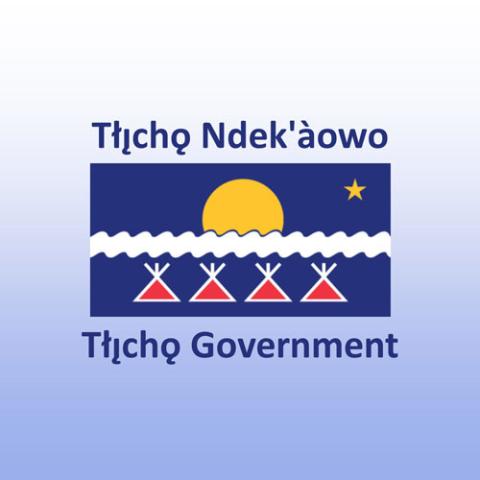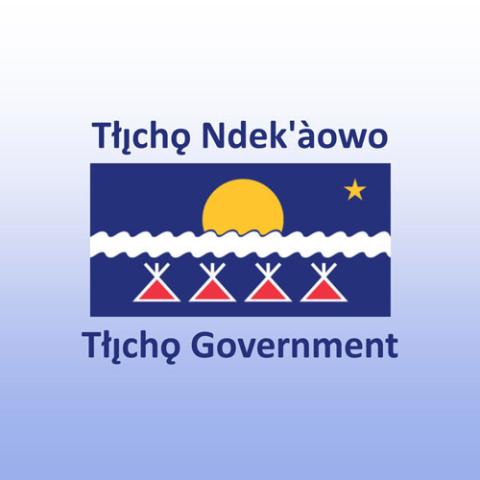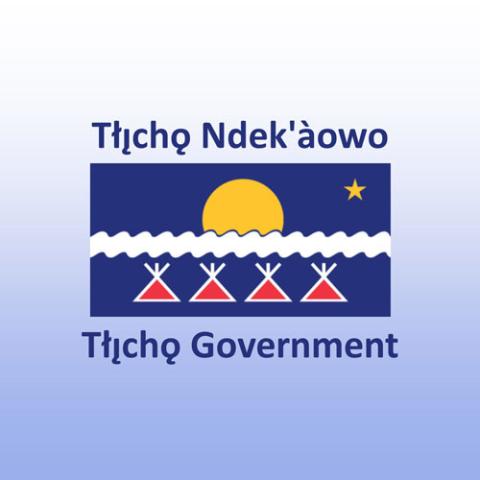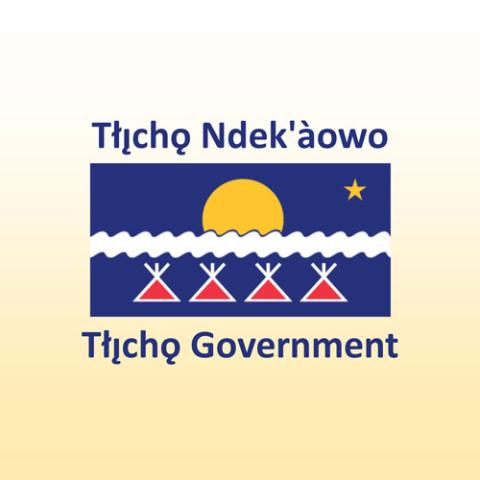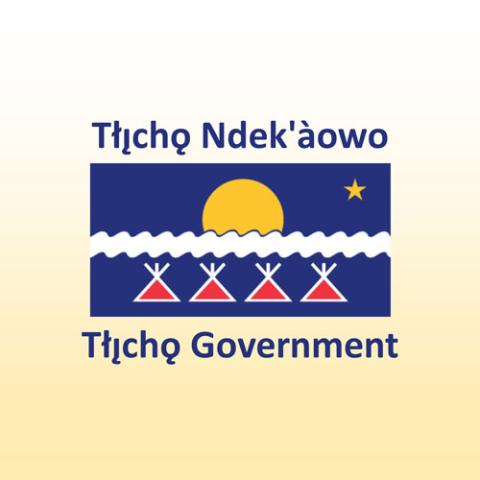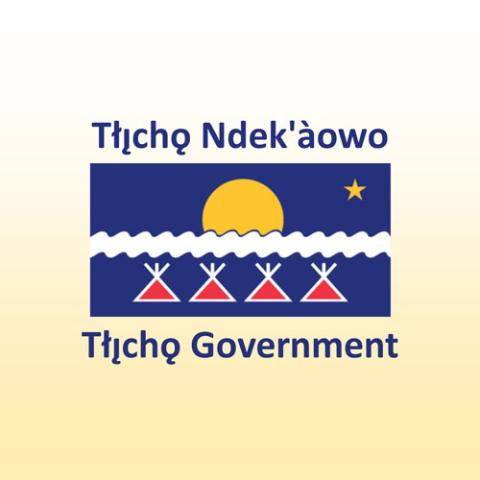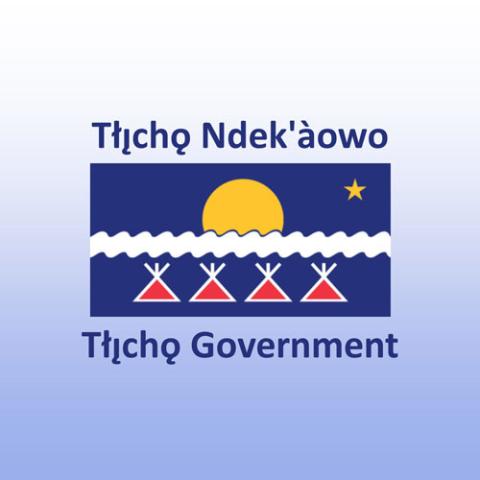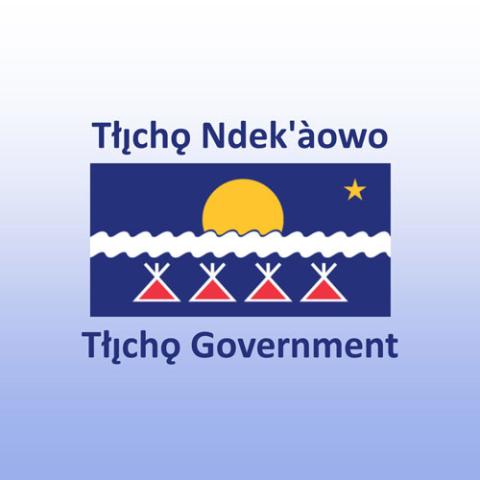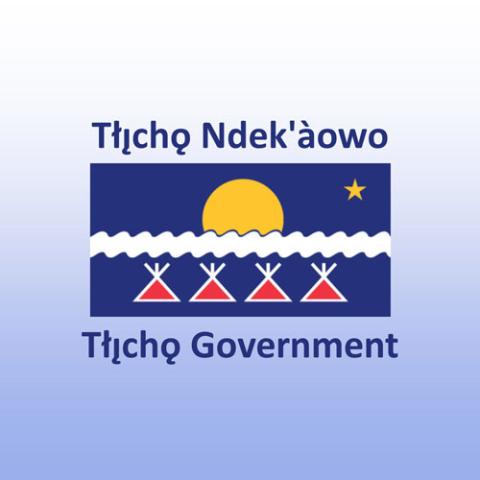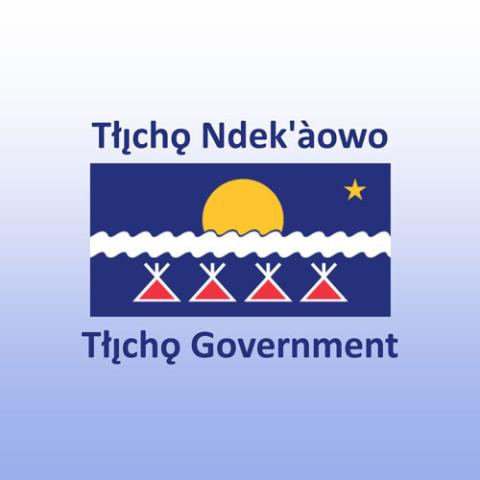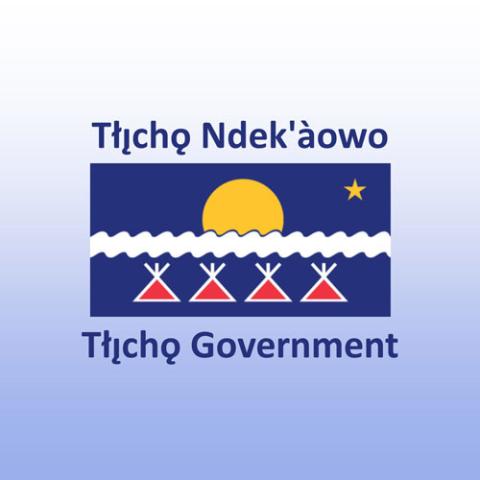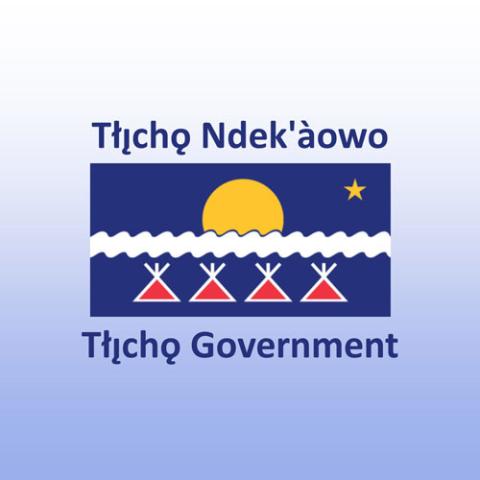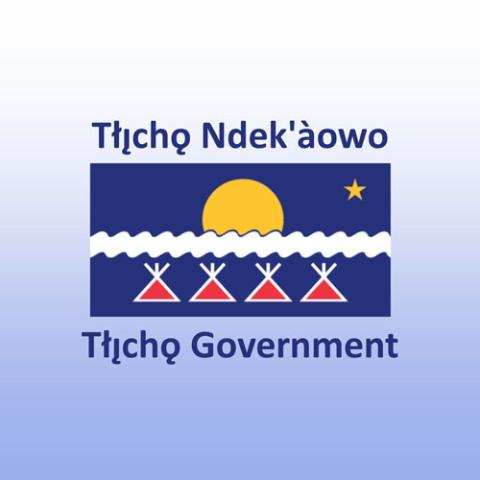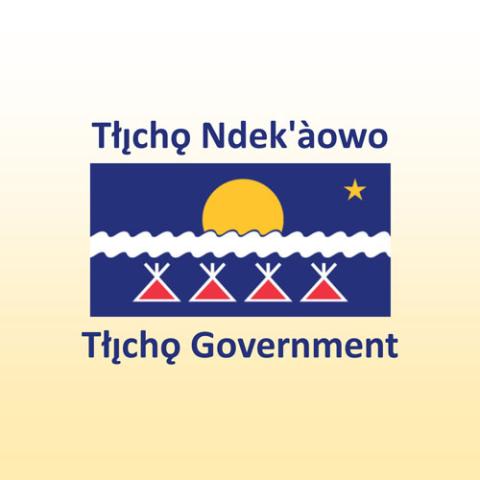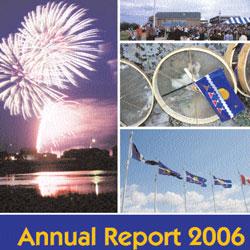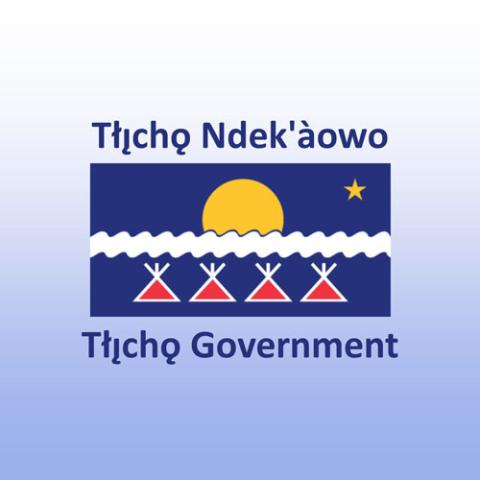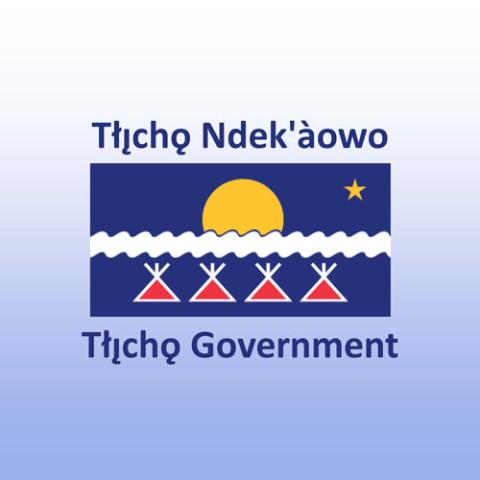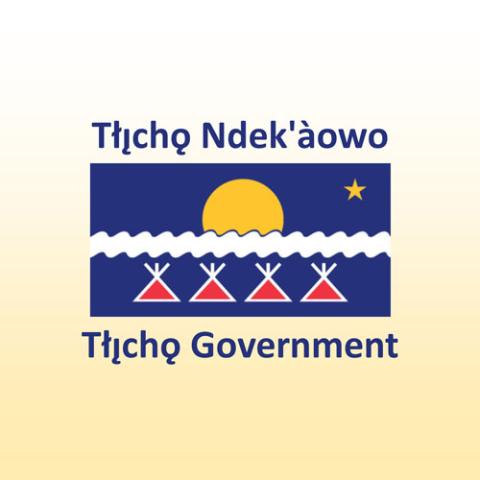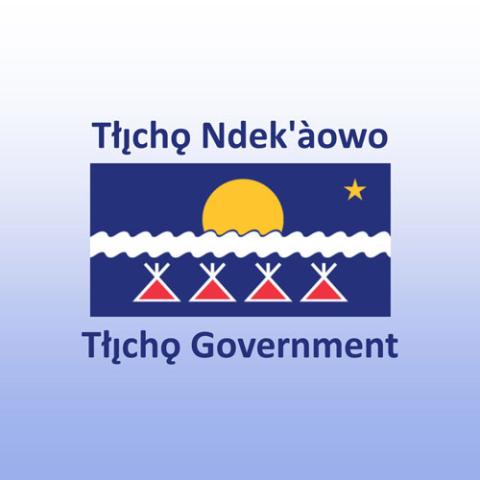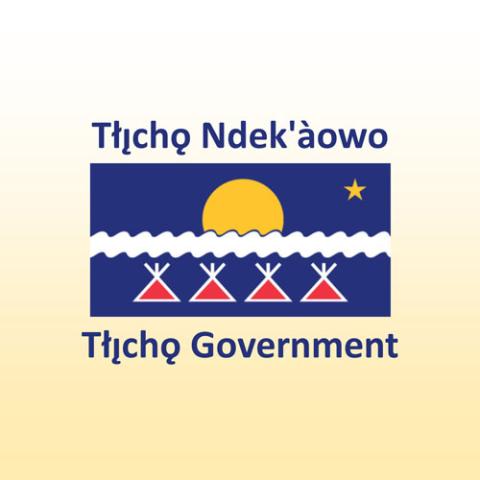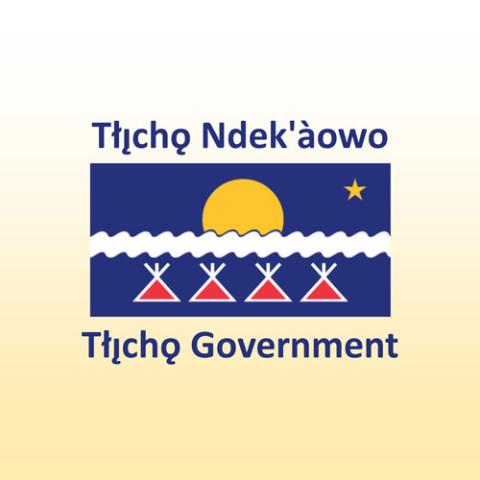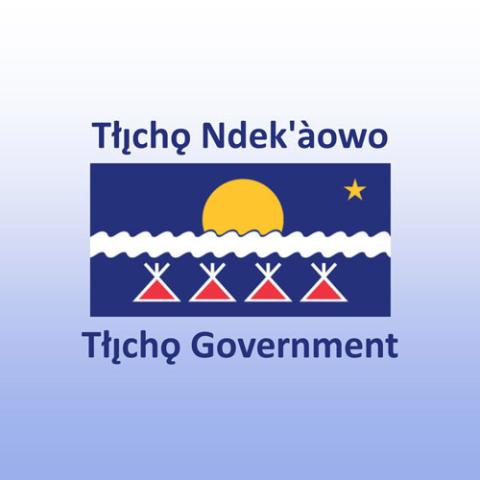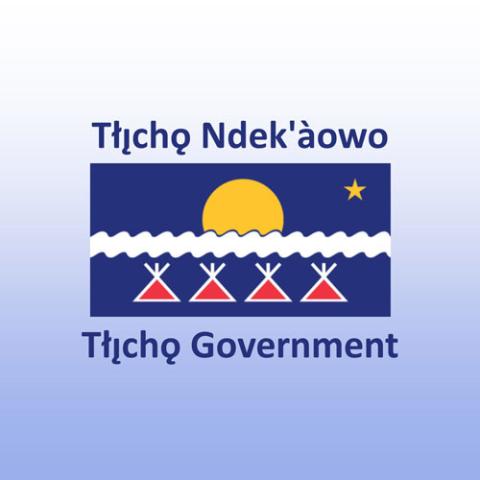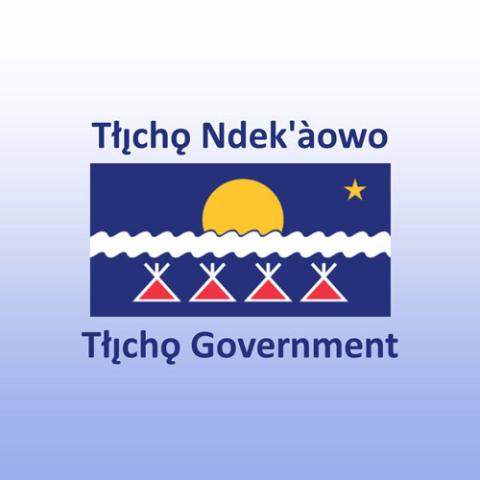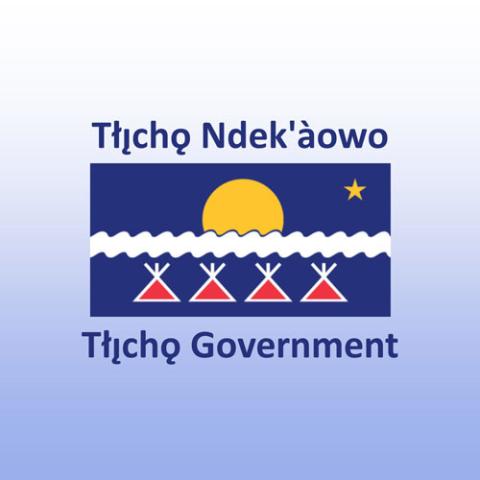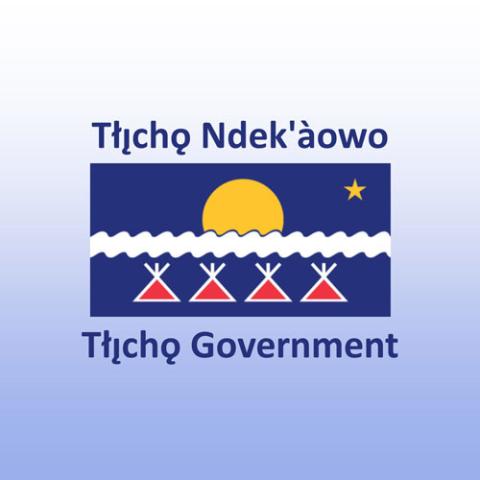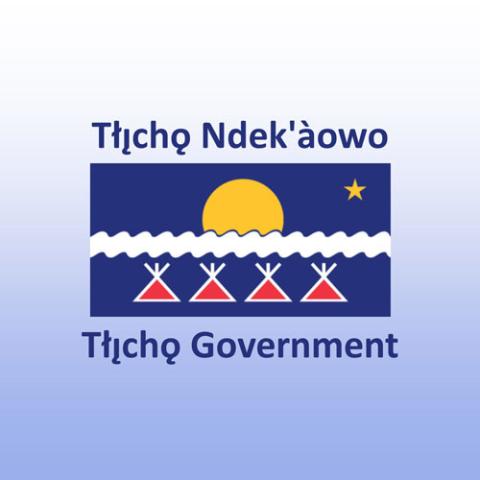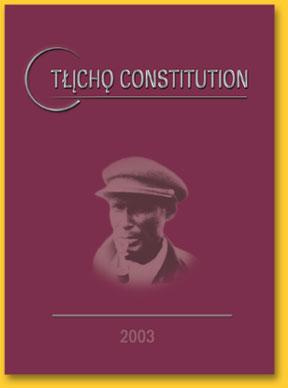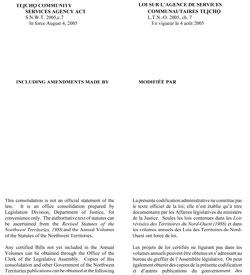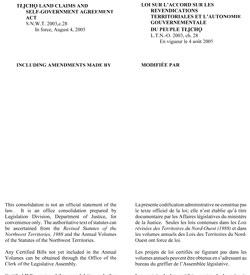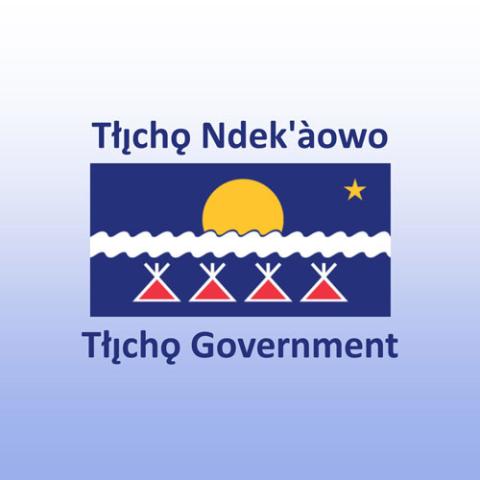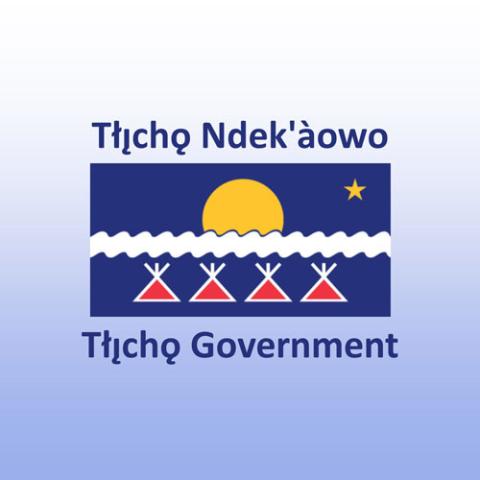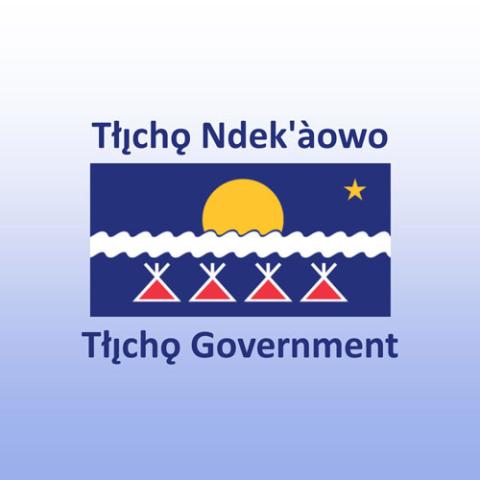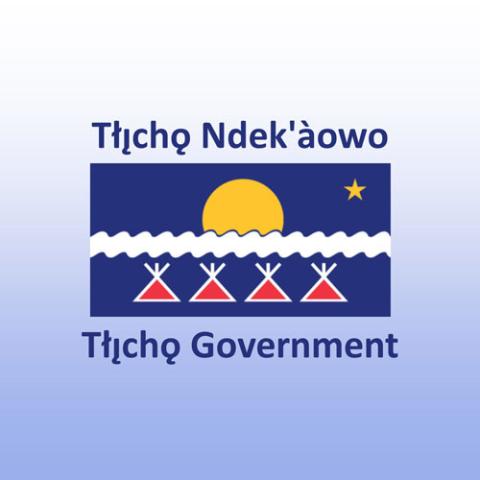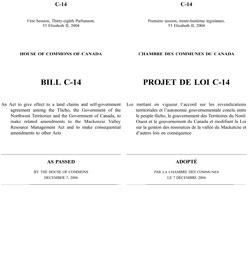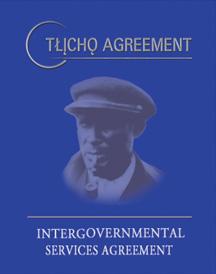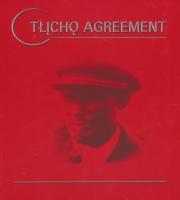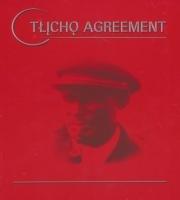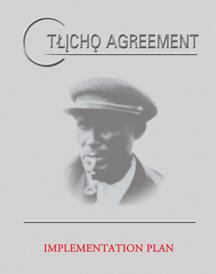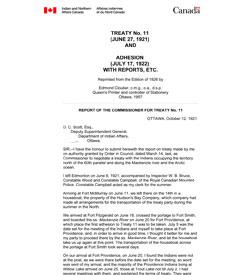Documents
There are two main filters to start your search of Tłı̨chǫ Government publications:
- Filter by Category
- Filter by Date
Filters are located on the right hand side of the screen.
You can check one box or multiple to refine your search.
If you are not able to find a publication please email [email protected]
The four main objectives of the Strategy are to:
- Improve self-sufficiency within the Tłı̨chǫ communities
- Leverage external partnerships to create opportunities for Tłı̨chǫ businesses and employment for Tłı̨chǫ citizens
- Deliver relevant training locally
- Enable external training and education
Iłè do˛ gha go˛ita, . . . In Tłıcho˛ Unity: Our Strategic Framework and Intentions 2021-2025 is the Tłıcho˛ Government’s fourth strategic framework and intentions . The purpose of this document is to communicate what our government will do, our motivation for doing what we do and how we will monitor and evaluate our actions . It is an invaluable tool as it provides direction as we make fundamental decisions and actions throughout our term
- The Vision, Mission and Strategic Intentions of our Government.
- Intentions, along with strategies, and the key initiatives and plans to meet our goals.
- A description of the planning process and the roles of citizens, elected leaders and staff.
- A description of Tłı˛cho˛ principles for guiding planning and decision-making.
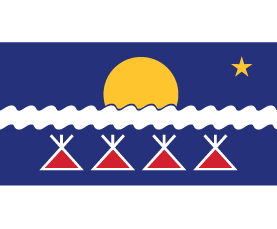
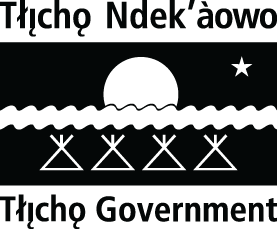
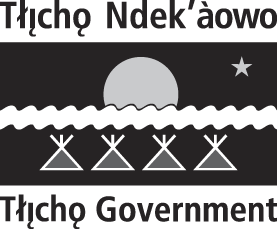
The Tłı̨chǫ flag embodies the strength and unity of our people. The tents represent the four Tłı̨chǫ Communities of Behchokǫ̀, Whatì, Gamètì and Wekweètì. The royal blue background reflects our broad Tłı̨chǫ territory. The sunrise and flowing river capture Chief Monfwi’s words, that as long as the sun rises, the river flows, and the land does not move, we will not be restricted from our way of life. Finally, the North Star represents a new era for the Tłı̨chǫ, as we move united into the future committed to protecting our language, culture and way of life for future generations. The Tłı̨chǫ flag was designed by James Wah-shee.
For more information please email [email protected]
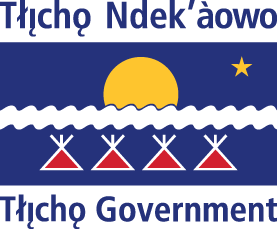
The Tłı̨chǫ flag embodies the strength and unity of our people. The tents represent the four Tłı̨chǫ Communities of Behchokǫ̀, Whatì, Gamètì and Wekweètì. The royal blue background reflects our broad Tłı̨chǫ territory. The sunrise and flowing river capture Chief Monfwi’s words, that as long as the sun rises, the river flows, and the land does not move, we will not be restricted from our way of life. Finally, the North Star represents a new era for the Tłı̨chǫ, as we move united into the future committed to protecting our language, culture and way of life for future generations. The Tłı̨chǫ flag was designed by James Wah-shee.
Tłı̨chǫ Region Tourism Strategy is part of the implementation plan for the overarching Tłı̨chǫ Regional Training and Development Strategy and has been prepared to support the objectives of the TREDWG.
This law adopts and approves the budget for the Tłı̨chǫ Government for the period of April 1, 2016 – March 31, 2017.
This law adopts and approves the Audited Financial Statements for the Tłįchǫ Government for the period of April 1, 2014 to March 31, 2015.
This law adopts and approves the budget for the Tłįchǫ Government for the period of April 1, 2015 – March 31, 2016.
This law allows TIC to determine its own structure and appoint the senior officers of the Corporation in consultation with the CEC. The law also determined that the majority of Board of Directors shall be Tłįchǫ Citizens.
This law amends section 12 of the Capital Transfers Protection Law by increasing the number of trustees from five to seven.
This law approves the Tłįchǫ Government Audited Financial Statements for April 1, 2013 – March 31, 2014.
This law provides for the implementation of the Resource Revenue Agreement that allows for the sharing of resource revenues from public lands with Aboriginal Governments for the use of government purposes.
This law adopts and approves the budget for the Tłįchǫ Government for the period of April 1, 2014 – March 31, 2015
The law allows the Chiefs Executive Council to implement Tłįchǫ Government obligation under this Agreement. The Agreement devolved the administration and control of public lands, resources and rights in respect of water in the Northwest Territories from Canada to the Commissioner of the Northwest Territories.
This law provides for the implementation of this Intergovernmental Agreement and the Intergovernmental Agreement formalizes the government to government relationship, establishes the Leaders Council and a Secretariat.
This law approves the Tłı̨chǫ Government Audited Financial Statements for April 1, 2012 – March 31, 2013.
This law adopts and makes effective the Tłįchǫ Land Use Plan.
This laws makes amendments to certain sections of the Tłįchǫ Lands Protection Law and repeals the following laws:
Amendment to the Tłįchǫ Lands Protection Law 2006,
Amendment to the Tłįchǫ Lands Protection Law 2007,
Amendment of the Tłįchǫ Lands Protection Law 2009, and
Amendment to the Tłįchǫ Lands Protection Law 2011.
This law makes amendment to certain sections of the Tłı̨chǫ Assembly and Chief's Executive Council Law and repeals the Tłı̨chǫ Language, Culture and Communications Law.
This law creates the Tłįchǫ Capital Transfer Trust that will hold and manage the Capital Transfer monies. This law also repeals the Capital Transfers Interim Protection Law.
This law makes the Chiefs Executive Council to be responsible for the administration of the financial affairs of the Tłı̨chǫ Government and to also be responsible for the management of the human resource within Tłı̨chǫ Government. This law repeals the Tłı̨chǫ Finance Law and the Tłı̨chǫ Human Resources Law.
Aboriginal Engineering Limited Loan Guarantee Regulation 2007
Chief’s Executive Council Loan Authorization Regulation
Cash Flow Loan Facility to the Tłı̨chǫ Investment Corporation Regulation
Venture West Purchase Support Facility to the Tłı̨chǫ Investment Corporation Regulation
This law adopts and approves the budget for the Tłįchǫ Government for the period of April 1, 2013 to March 31, 2014.
This Northwest Territories Bill established the community governments of Behchokǫ̀, Whatì, Gamètì, and Wekweètì, and describes their boundaries. This Act covers the composition and role of the community council, eligibility to vote, the duties of the chief, and it details the powers of these municipalities.
Regulations:
This law makes amendments to certain sections of the Grand Chief Nomination and Election Law that was passed on August 4, 2005.
This law approves the Tłįchǫ Government Audited Financial Statements for April 1, 2011 – March 31, 2012.
This law adopts and approves the budget for the Tłįchǫ Government for the period of April 1, 2012 to March 31, 2013.
This law adopts and approves the first amendment to the budget of the Tłįchǫ Government for the period of April 1, 2011 – March 31, 2012.
This law approves the Tłįchǫ Government Audited Financial Statements for April 1, 2010 to March 31, 2011.
This law repeals certain sections of the Tłįchǫ Procedures Law.
This law adopts and approves the budget for the Tłįchǫ Government for the period of April 1, 2011 to March 31, 2012.
This law adopts and approves the first amendment to the budget of the Tłı̨chǫ Government for the period of April 1, 2010 – March 31, 2011.
This law approves the Tłı̨chǫ Government Audited Financial Statements for April 1, 2009 to March 31, 2010.
This report sets out achievements and developments from from 2009, to 2010.
This law adopts and approves the budget for the Tłįchǫ Government for the period of April 1, 2010 to March 31, 2011.
This law adopts and approves a second amendment to the budget of the Tłı̨chǫ Government for the period of April 1, 2009 to March 31, 2010.
The Tłı̨chǫ Assembly Members and Chiefs Transition Allowance Law allows Tłı̨chǫ Assembly Members, Chiefs and Grand Chiefs to receive a transition allowance when they are no longer an Assembly Member, a Chief or a Grand Chief. This law amends section 4(b) of the Tłı̨chǫ Assembly and Chiefs Transition Allowance Law.
This law adopts and approves the first amendment to the budget of the Tłı̨chǫ Government for the period of April 1, 2009 – March 31, 2010.
This law amends Schedule A of the Tłı̨chǫ Assembly and Chief’s Executive Council Law Schedule B Amendment Law 2005. Schedule A establishes the remuneration of the Members, Chief’s and Grand Chief. This law amends the amounts of remuneration per annum.
This law approves the Tłı̨chǫ Government Audited Financial Statements for April 1, 2008 to March 31, 2009.
This law allows Tłı̨chǫ Assembly Members, Chiefs and Grand Chiefs to receive a transition allowance when they are no longer an Assembly Member, a Chief or a Grand Chief.
This law adopts and approves the budget for the Tłı̨chǫ Government for the period of April 1, 2009 to March 31, 2010.
This law approves the Tłı̨chǫ Government Audited Financial Statements for April 1, 2007 – March 31, 2008.
This law adopts and approves a second amendment to the budget of the Tłı̨chǫ Government for the period of April 1, 2008 to March 31, 2009.
This law provides supplemental funding and expenditure to the budget law for 2008 – 2009.
This law adopts and approves the budget for the Tłı̨chǫ Government for the period of April 1, 2008 to March 31, 2009.
This law adopts and approves an amendment to the budget of the Tłı̨chǫ Government for the period of April 1, 2008 – March 31, 2009.
This law provides for an interim budget for the Tłı̨chǫ Government from April – June 2008
This law approves the Tłı̨chǫ Government Audited Financial Statements for April 1, 2006 to March 31, 2007.
GNWT committed to build an addition to the Jean Wetrade Gameti School to allow students to complete their grade 12 education in their community. The amount that GNWT committed to contribute was not sufficient to complete the project, therefore the Tłı̨chǫ Assembly provided $865,000 from its reserve fund to pay for the shortfall between actual cost and the GNWT commitment. They also provided a loan to Tłı̨chǫ Construction to be able to complete the project.
This law adopts and approves the budget and expenditure from the IBA/PA funds received by Tłı̨chǫ Government for the period April 1, 2007 to March 31, 2008.
This law adopts and approves the budget for the Tłı̨chǫ Government for the period of April 1, 2007 to March 31, 2008.
In this law, the Assembly granted access to Tłı̨chǫ lands for the construction of the winter road to Wekweètì.
This law approves the Tłı̨chǫ Government Audited Financial Statements for August 4, 2005 to March 31, 2006.
This law instructs there to be a corporation incorporated under the laws of Canada called the Tłı̨chǫ Investment Corporation. This Corporation shall be the main instrument of the Tłı̨chǫ Government responsible for the holdings, management and oversight of all Tłı̨chǫ Government business interests. This law allows for the appointment of the Board of Directors, the President and Chair of the Board of Directors.
This law adopts and approves the budget and expenditure from the IBA/PA funds received by Tłı̨chǫ Government for the period April 1, 2006 to March 31, 2007.
This law adopts and approves the budget for the Tłı̨chǫ Government for the period of April 1, 2006 to March 31, 2007.
This law amends previous budgets to include a one time payment to each Tłı̨chǫ citizen allocated to the PBA and IBA reserve funds.
This law amends Schedule B of the original Tłı̨chǫ Assembly and Chief’s Executive Council Law. Schedule B establishes the remuneration of the Members, Chief’s and Grand Chief. This law amends the amounts of remuneration per annum.
This law establishes what will be taxed, how the tax revenue is collected, administered, shared and remitted.
This law adopts and approves the budget for the Tłı̨chǫ Government for the period of November 1, 2005 to March 31, 2006.
This law allows the Tłı̨chǫ Government to receive income tax money. It also explains how Canada will collect income tax and share them back with Tłı̨chǫ Government.
This law establishes the Lands Protection Department as well as guidelines for application for lands, trespassing on Tłı̨chǫ Lands, and how to deal with offenses. It establishes a moratorium on Tłı̨chǫ Lands and this moratorium will be in effect until April 30, 2006
This law allows for the appointment of the Tłı̨chǫ Executive Officer, appointments on Boards and other entities, it directs how Assembly Members and the Grand Chief are to conduct themselves, how they are paid and how to deal with vacancies and resignations.
The Constitution protects the rights of Tłı̨chǫ Citizens, including protecting Tłı̨chǫ Citizens from any wrongful actions of the Tłı̨chǫ Government. The Constitution sets out the structure of the Tłı̨chǫ Government. It describes the main roles and responsibilities of officials, and it sets the rules for elections. The Constitution also provides the rules for the Annual Gathering. The Constitution makes the Tłı̨chǫ Government (including the companies and boards it sets up) accountable for its decisions about money and for managing Tłı̨chǫ resources properly.
This Northwest Territories Bill gave government approval to the original Tłı̨chǫ Agreement, signed in August 2003. This is the land claims and self government agreement among the Tłı̨chǫ, the Government of Canada and the Government of the Northwest Territories. The bill also approves the Tłı̨chǫTax Treatment Agreement.
This law establishes the guidelines for the nomination and election of the Grand Chief. It also describes the role and responsibilities of the Grand Chief. It also establishes an appeal process.
This law adopts and approves the Starter Budget for the Tłı̨chǫ Government.
An Omnibus law is used to allow several laws to be passed together under one law. On effective date, an omnibus law was used to pass the following Tłı̨chǫ laws in order for Tłı̨chǫ Government to be up and operating as a Government.
This law establishes a process for passing Tłı̨chǫ laws and regulations. Under the law, a Laws Guardian is appointed who is responsible for keeping up-to-date of all Tłı̨chǫ laws and regulations, as well as to provide advice to the Chief’s Executive Council and Tłı̨chǫ Assembly on the interpretation of the Tłı̨chǫ Agreement, Tłı̨chǫ Constitution and Tłı̨chǫ Laws and on procedural matters.
This Government of Canada Act received Royal Assent February 15, 2005. This is the legislation approving the first comprehensive land claim and self government agreement in the Northwest Territories and the second such agreement in Canada. The agreement created the Tłı̨chǫ Government, which owns 39,000 square kilometers of land, including subsurface resources. The Tłįchǫ also receive approximately $152 million over 14 years, and a share of resource royalties from development in the Mackenzie Valley.
This Agreement between Canada, the Northwest Territories and the Tłı̨chǫ created the Tłı̨chǫ Community Services Agency, successor to the Dogrib Community Services Board. The Agency provides Education, Health and Social Services to the people of the Tłı̨chǫ, and is controlled by the Tłı̨chǫ. The inclusion of culture and language in the operation of these services is also covered. Services include those normally supplied by the Government of the Northwest Territories, as well as certain services provided by the Government of Canada, and education, health and social services developed by the Tłı̨chǫ Government.
The Tłı̨chǫ Land Claims and Self-Government Agreement was signed on August 25 2003, exactly 82 years after Treaty 11 was signed by Chief Monfwi in 1921. The Agreement was signed by representatives of the Dogrib Treaty 11 Council, the Government of the Northwest Territories (GNWT) and the Government of Canada. The Tłı̨chǫ Agreement is the first combined land claim and self-government agreement in the Northwest Territories.
The Tłı̨chǫ Land Claims and Self-Government Agreement was signed on August 25 2003, exactly 82 years after Treaty 11 was signed by Chief Monfwi in 1921. The Agreement was signed by representatives of the Dogrib Treaty 11 Council, the Government of the Northwest Territories (GNWT) and the Government of Canada. The Tłı̨chǫ Agreement is the first combined land claim and self-government agreement in the Northwest Territories.
The implementation plan is an agreement among the Tłı̨chǫ Government, Canada and the GNWT to make sure all the promises and commitments made in the Tłı̨chǫ.
The Financing Agreement provides the money to run the Tłı̨chǫ Government. It also includes money for one-time costs like building facilities, buying computers and preparing new laws. . Every five years, the Financing Agreement will be reviewed to make sure activities are funded properly. In the future, if the Tłı̨chǫ Government earns enough money from its own revenue sources, it will reduce the amount needed to be transferred under the Financing Agreement. In this way, the Tłı̨chǫ Government will gradually become self-sufficient.
